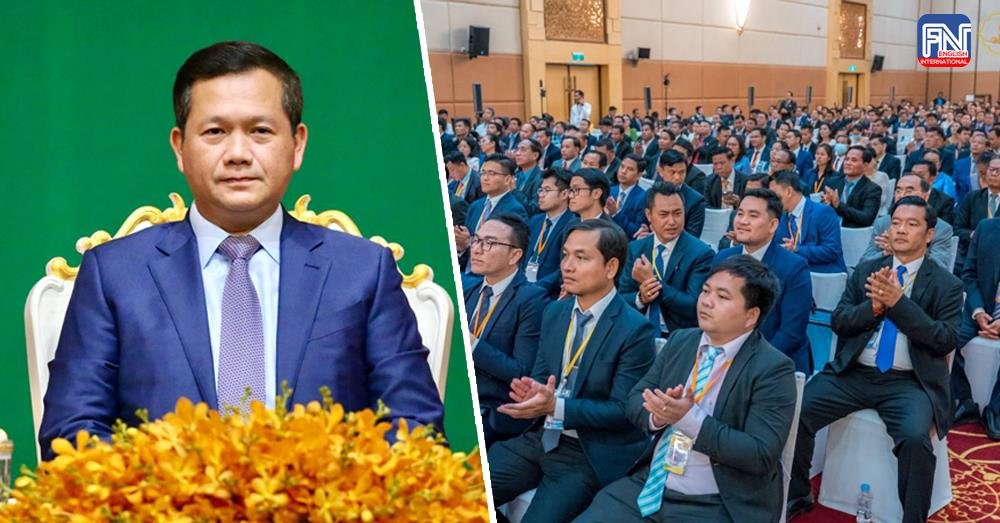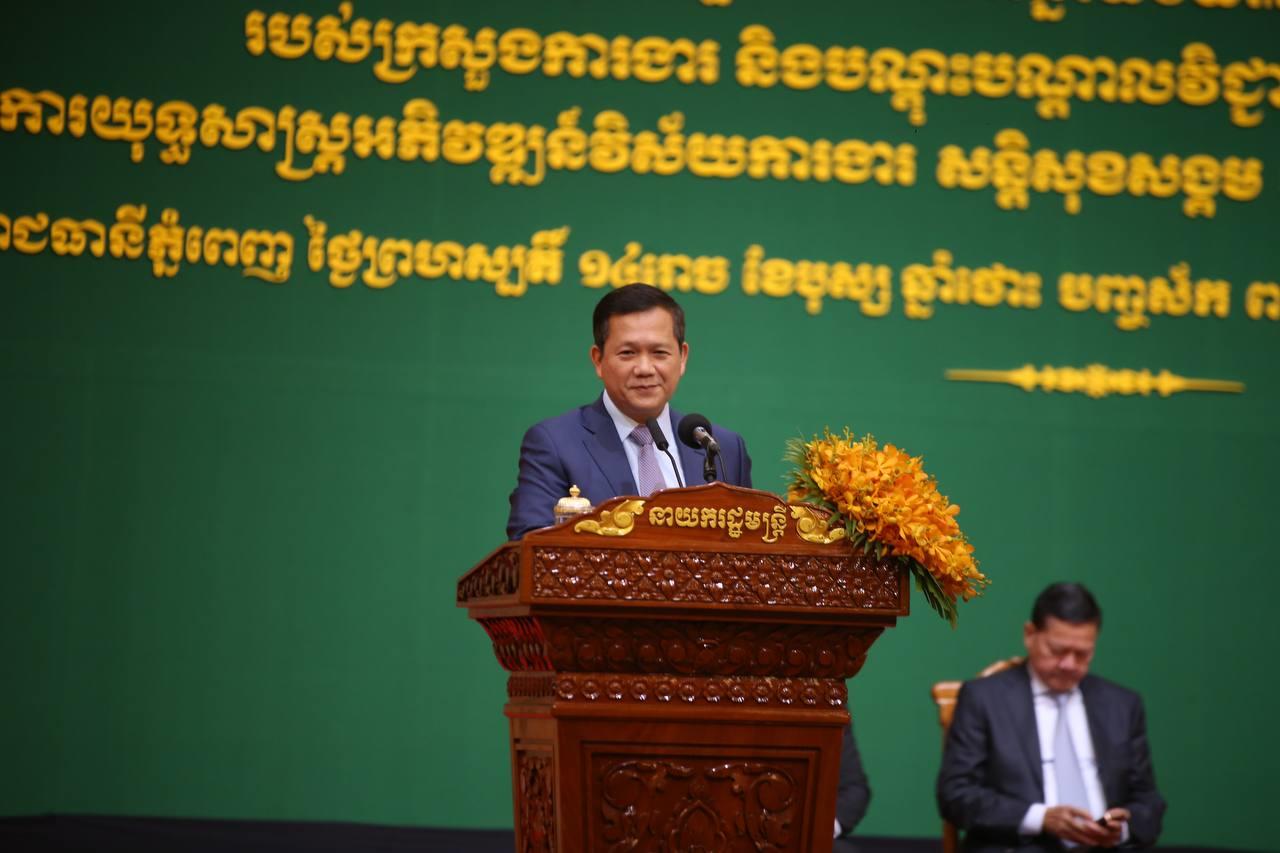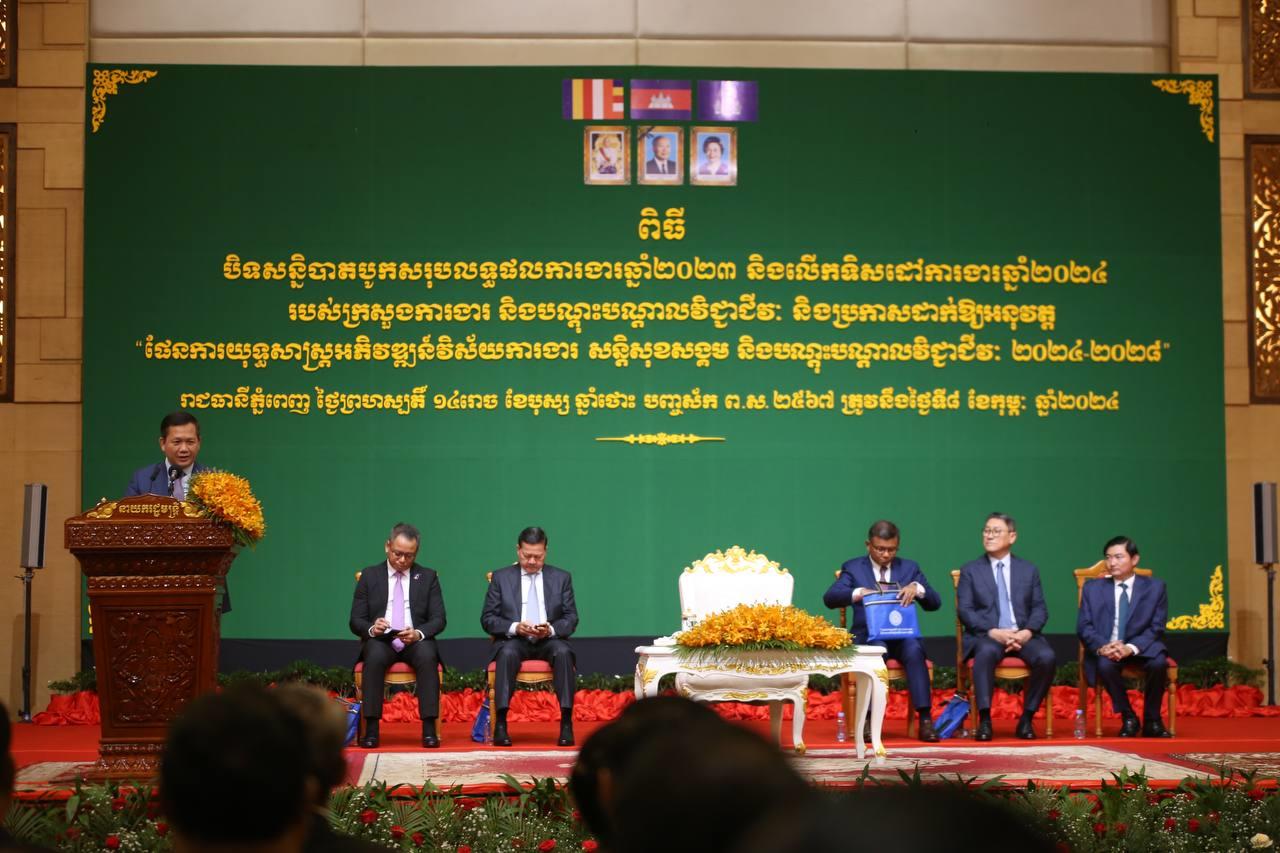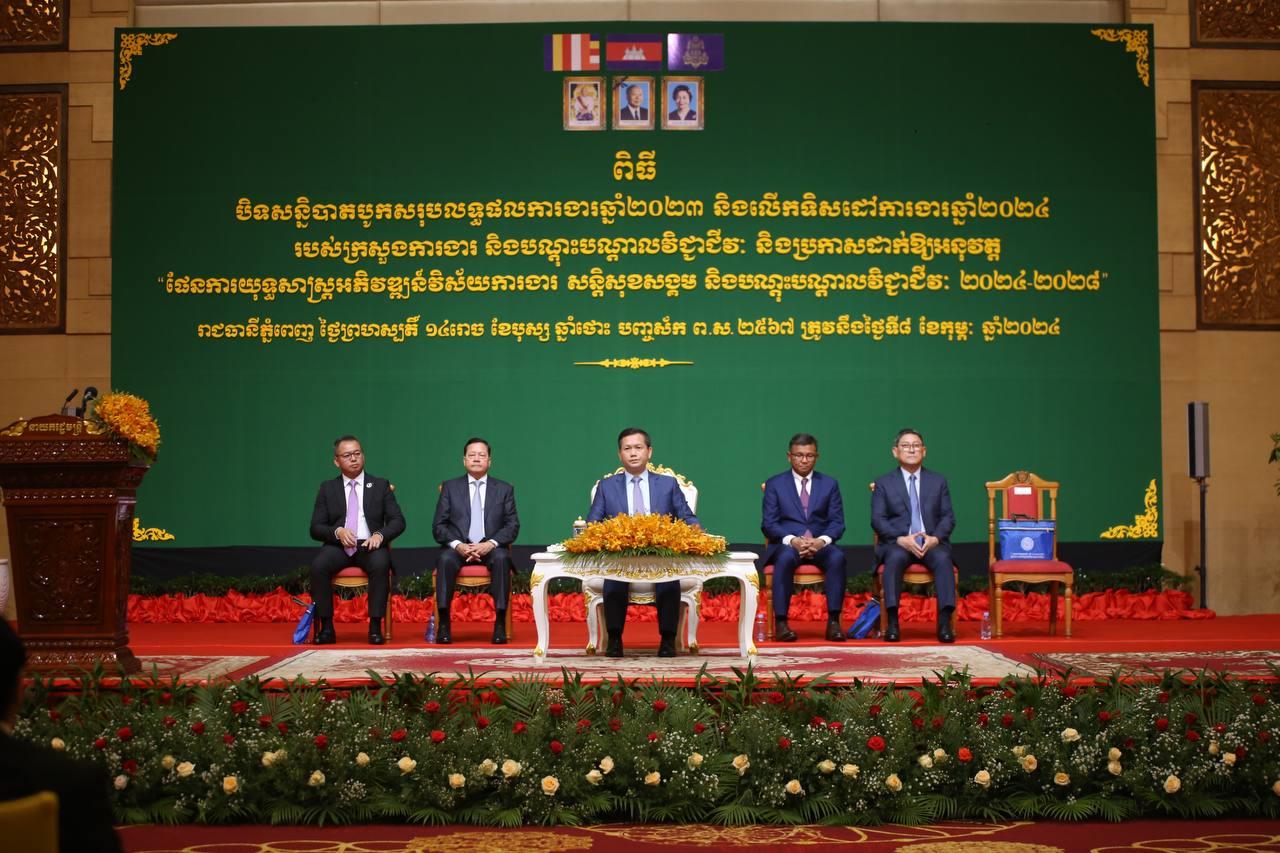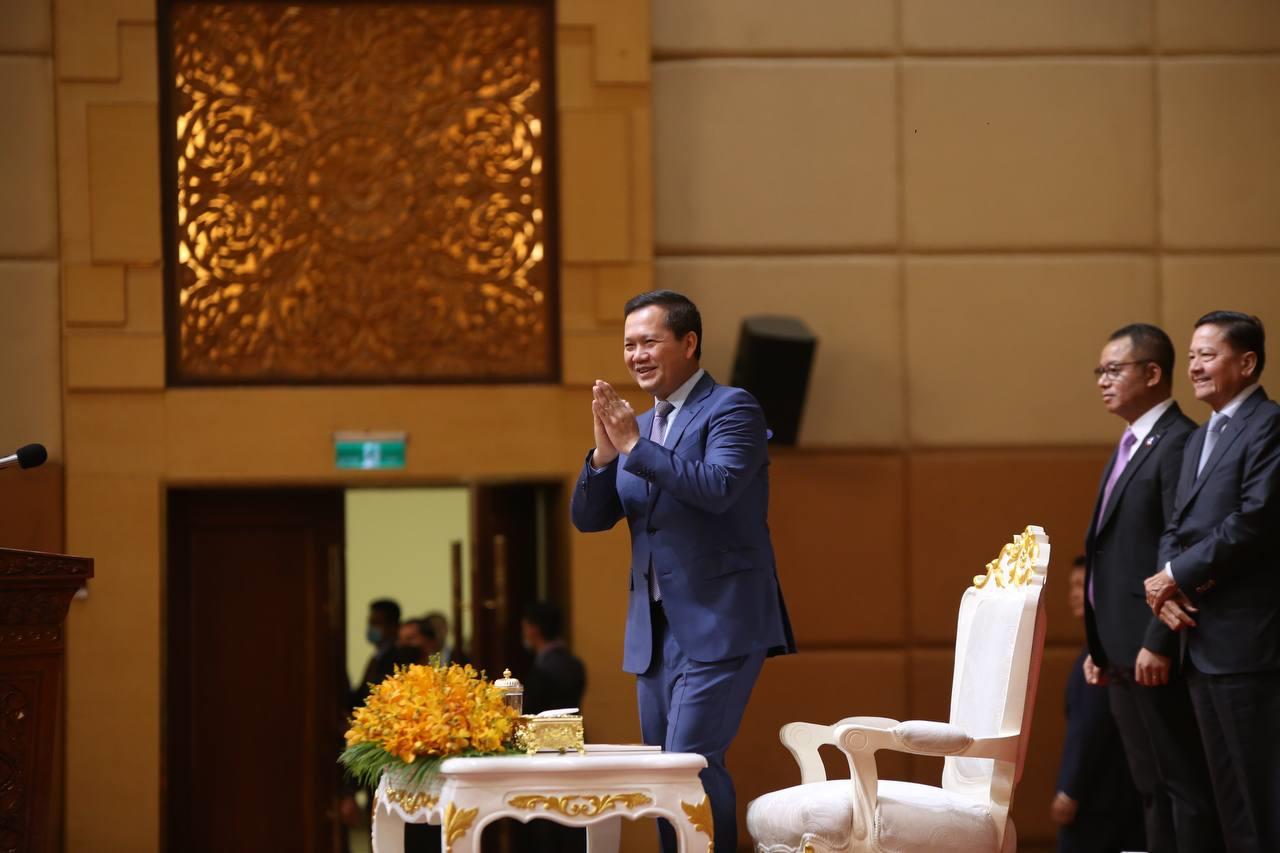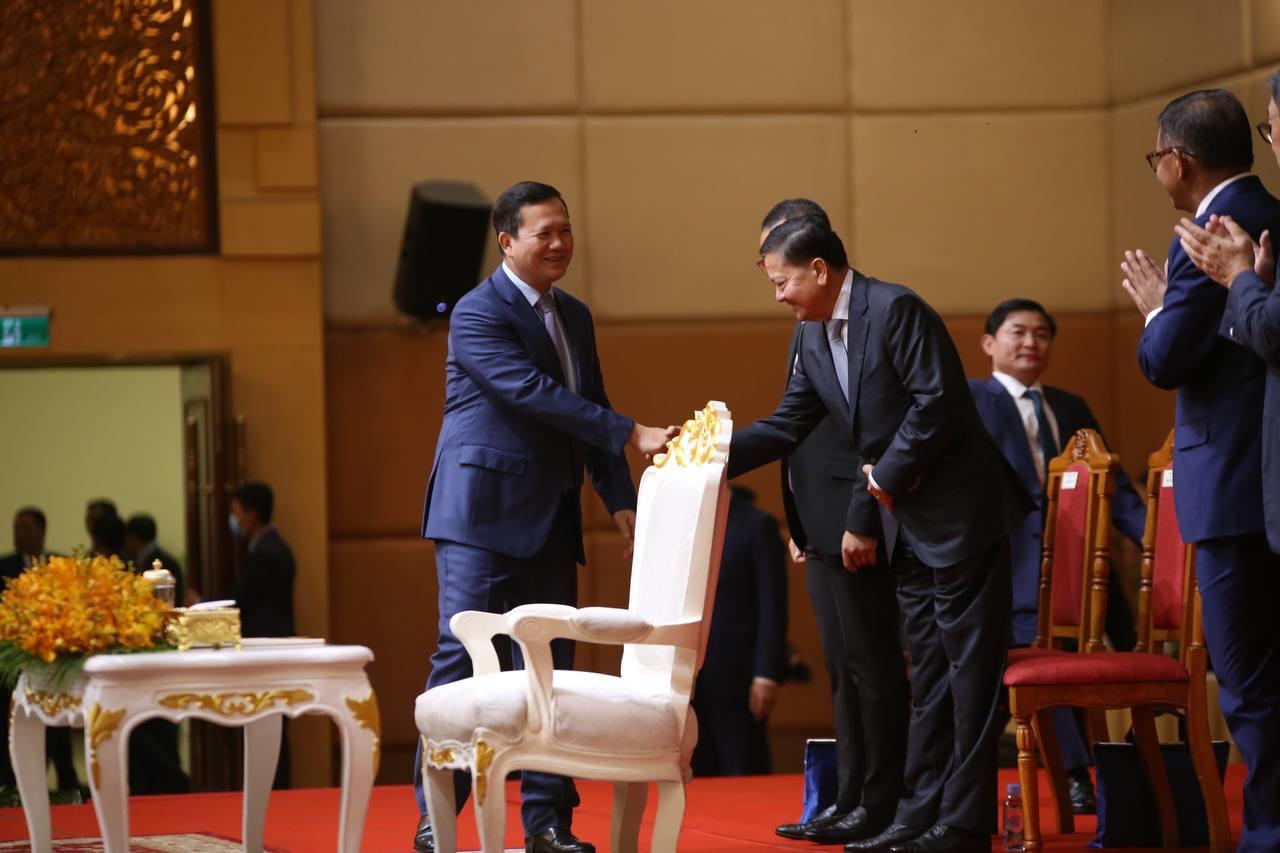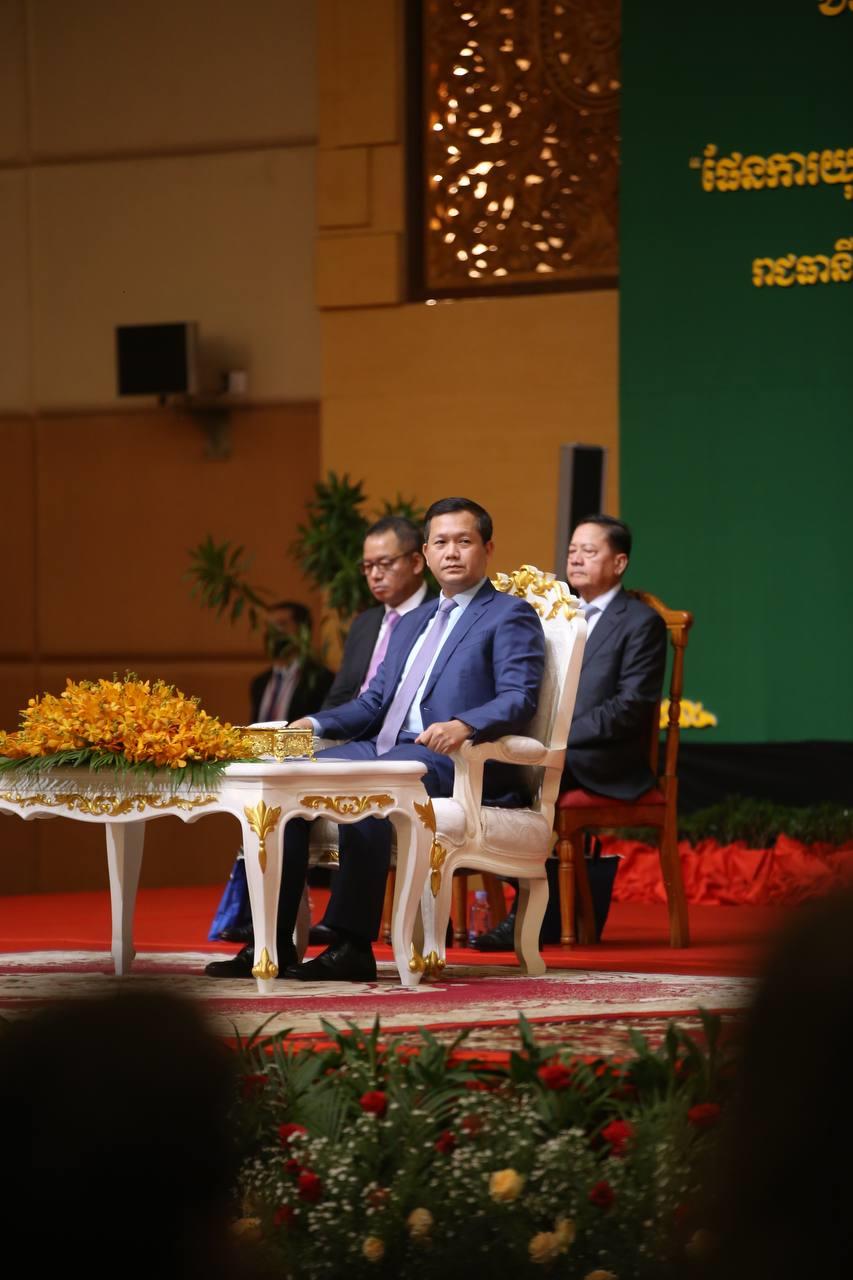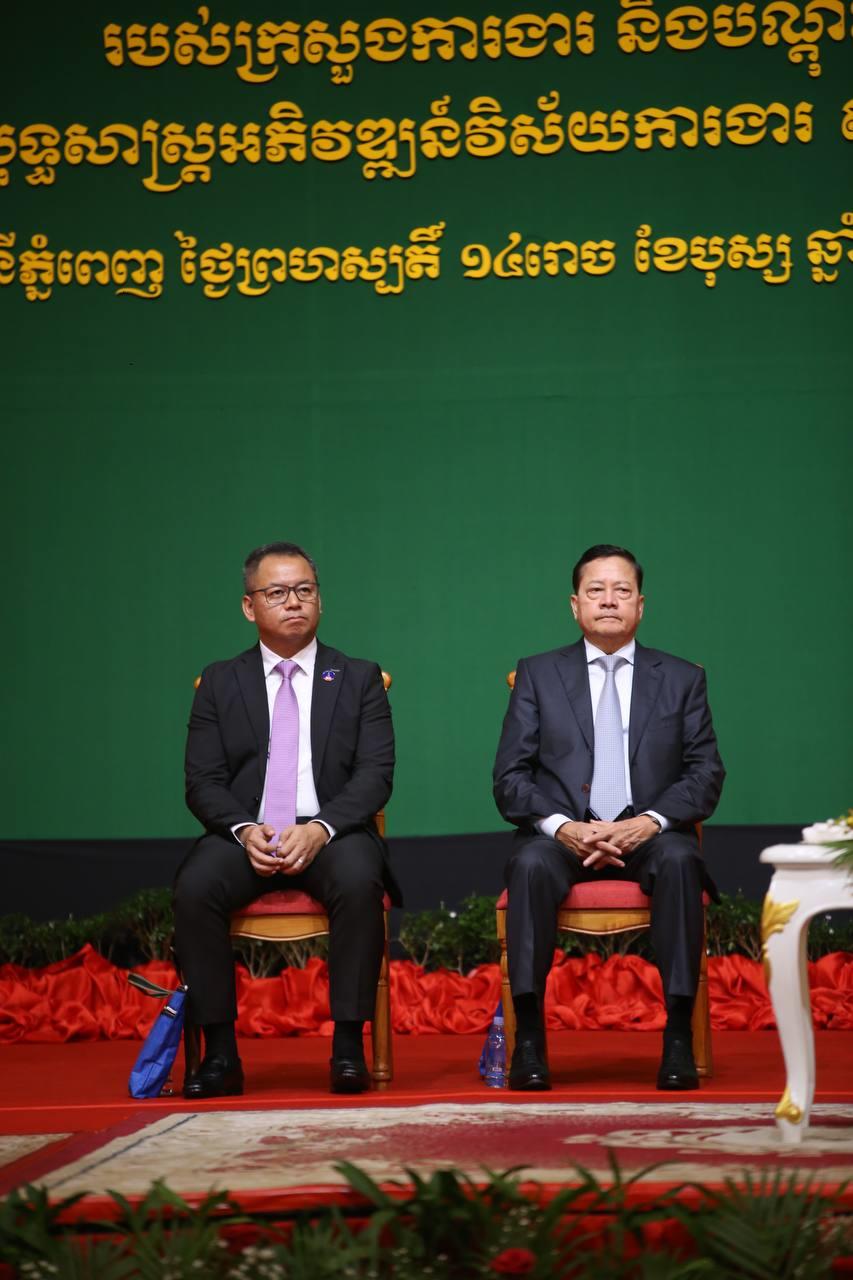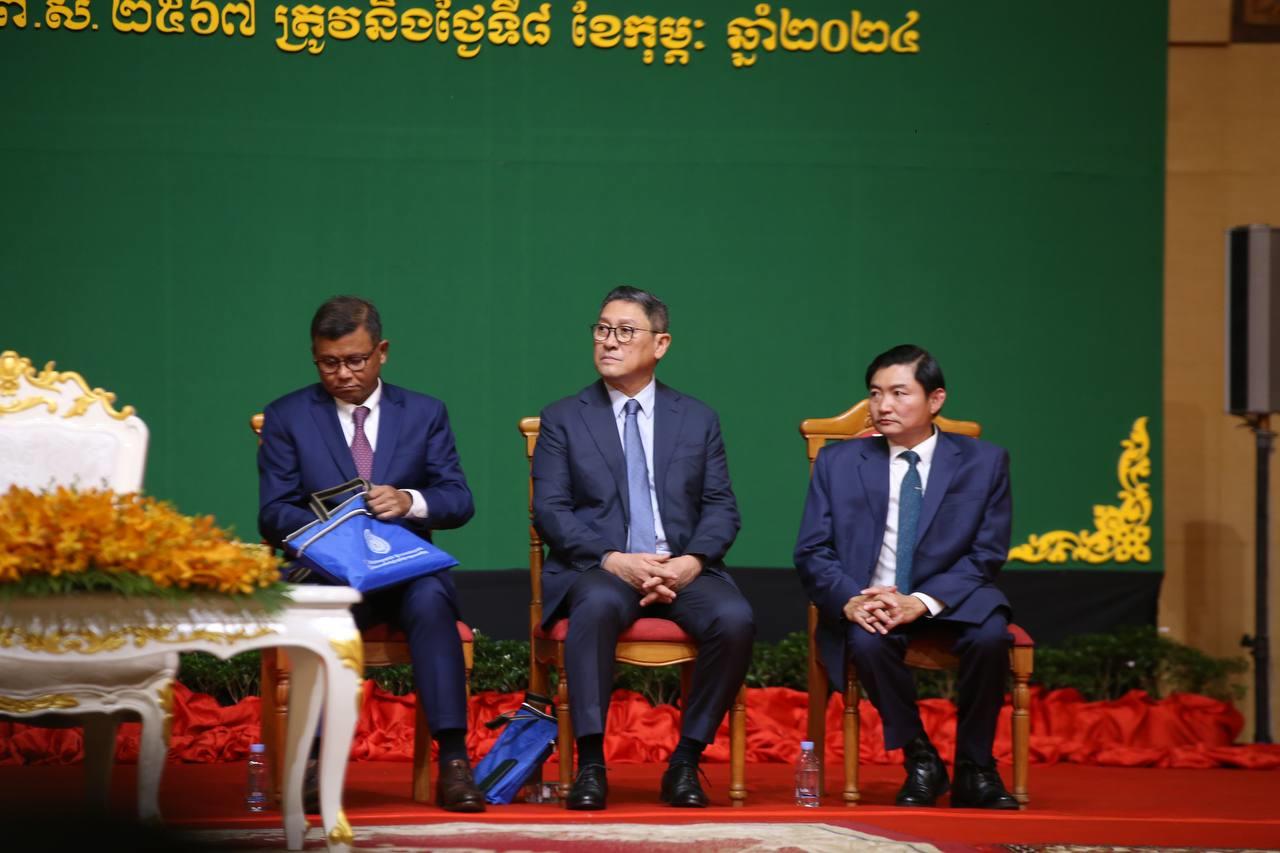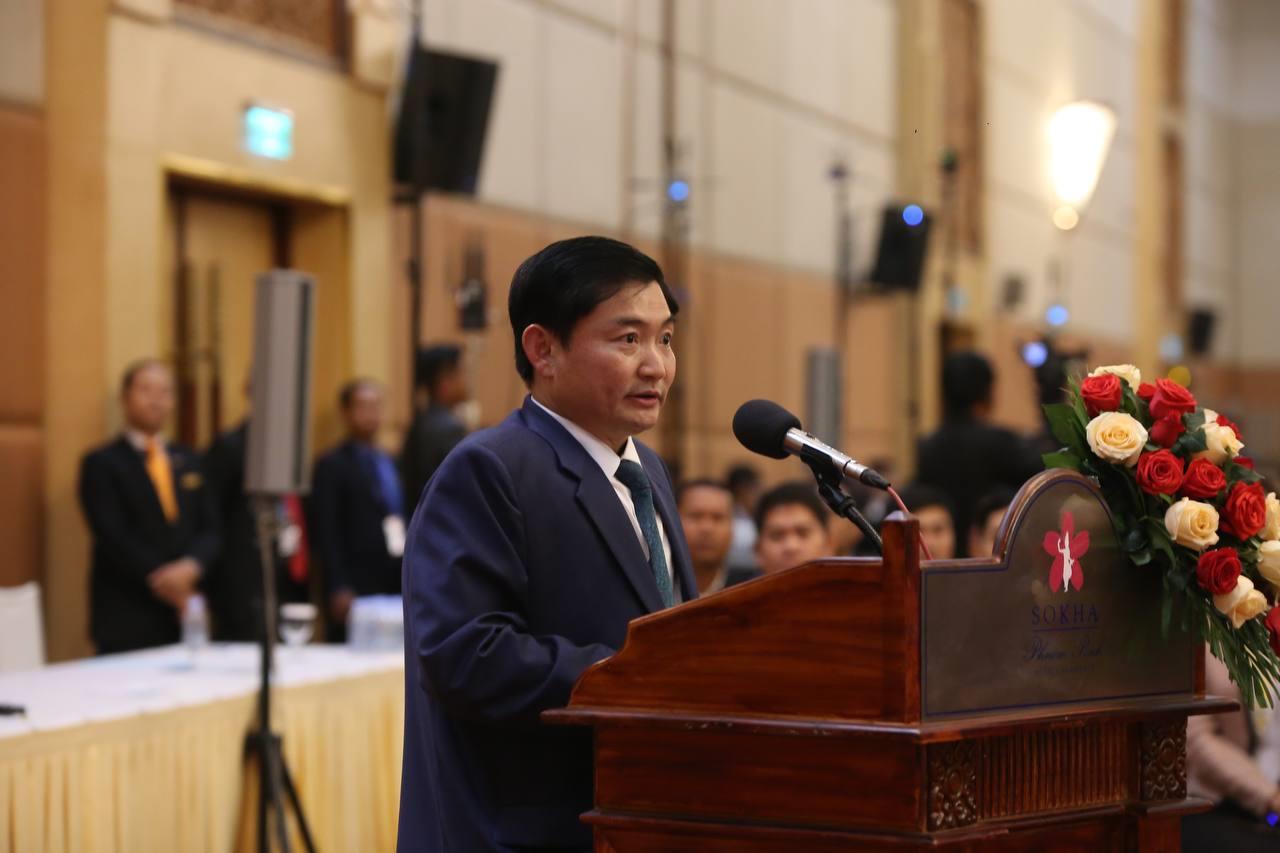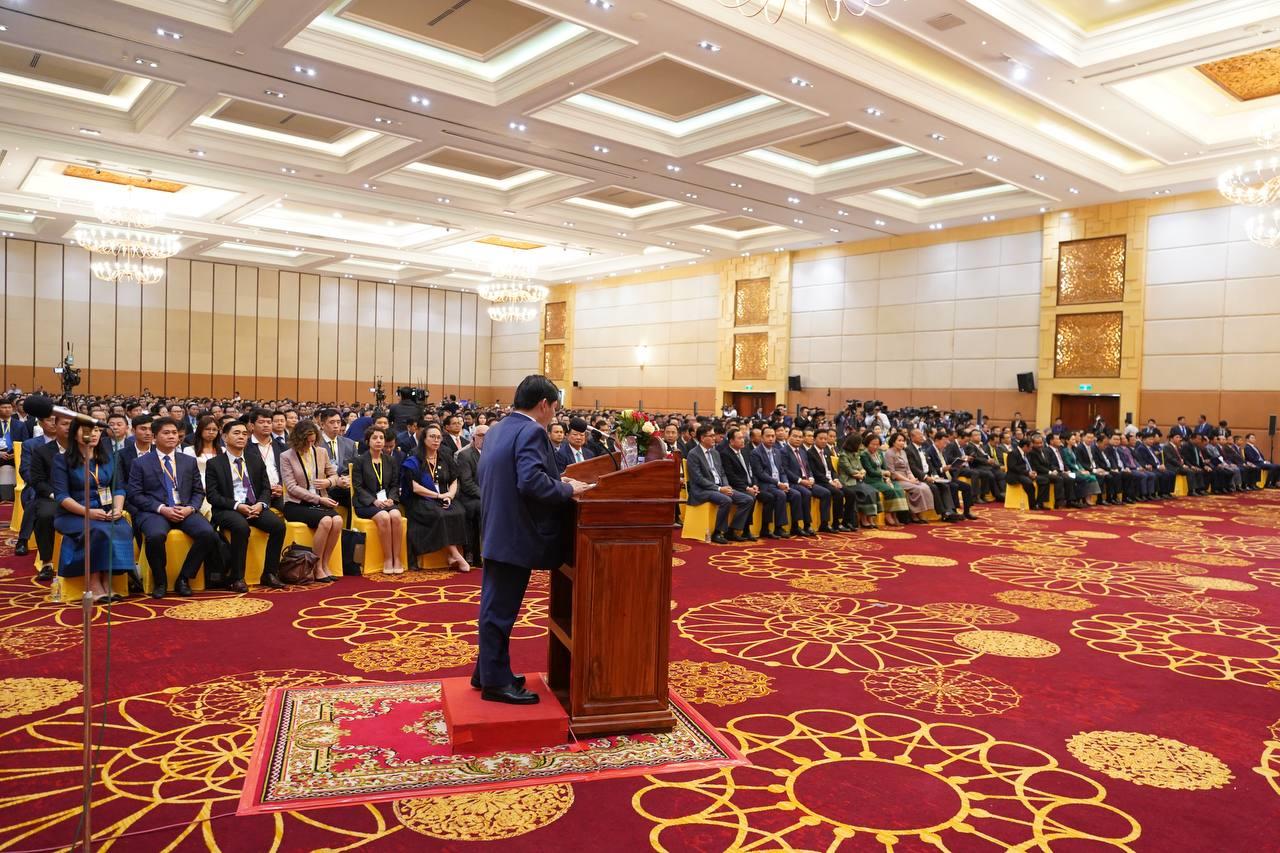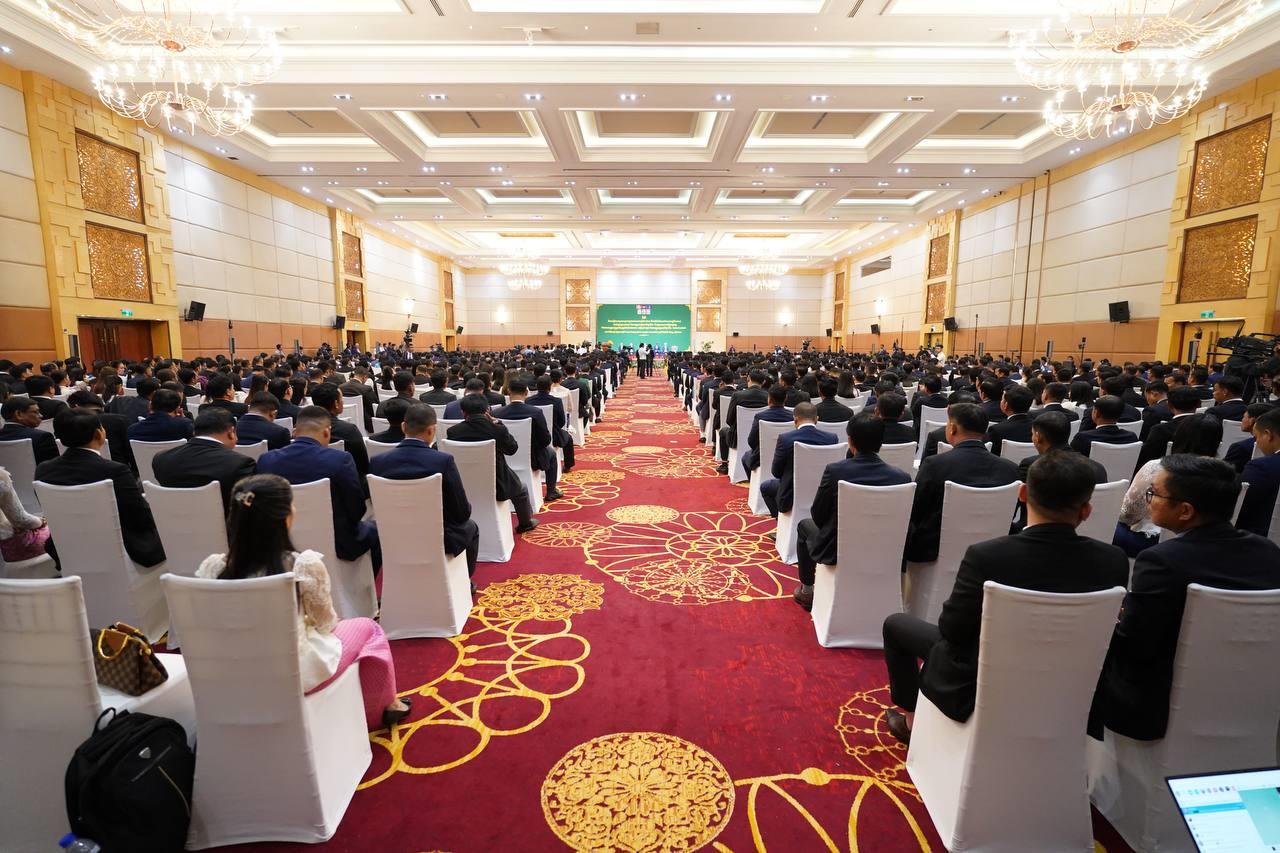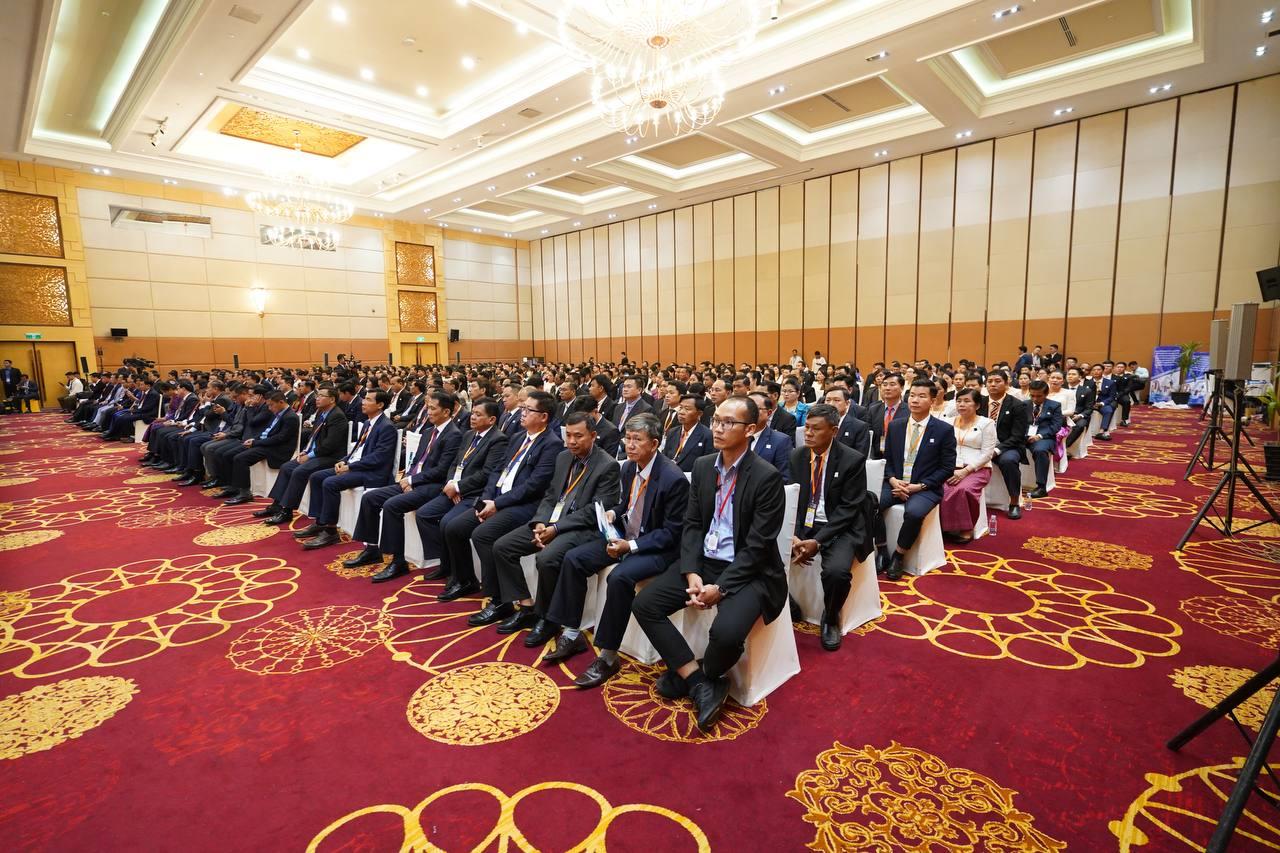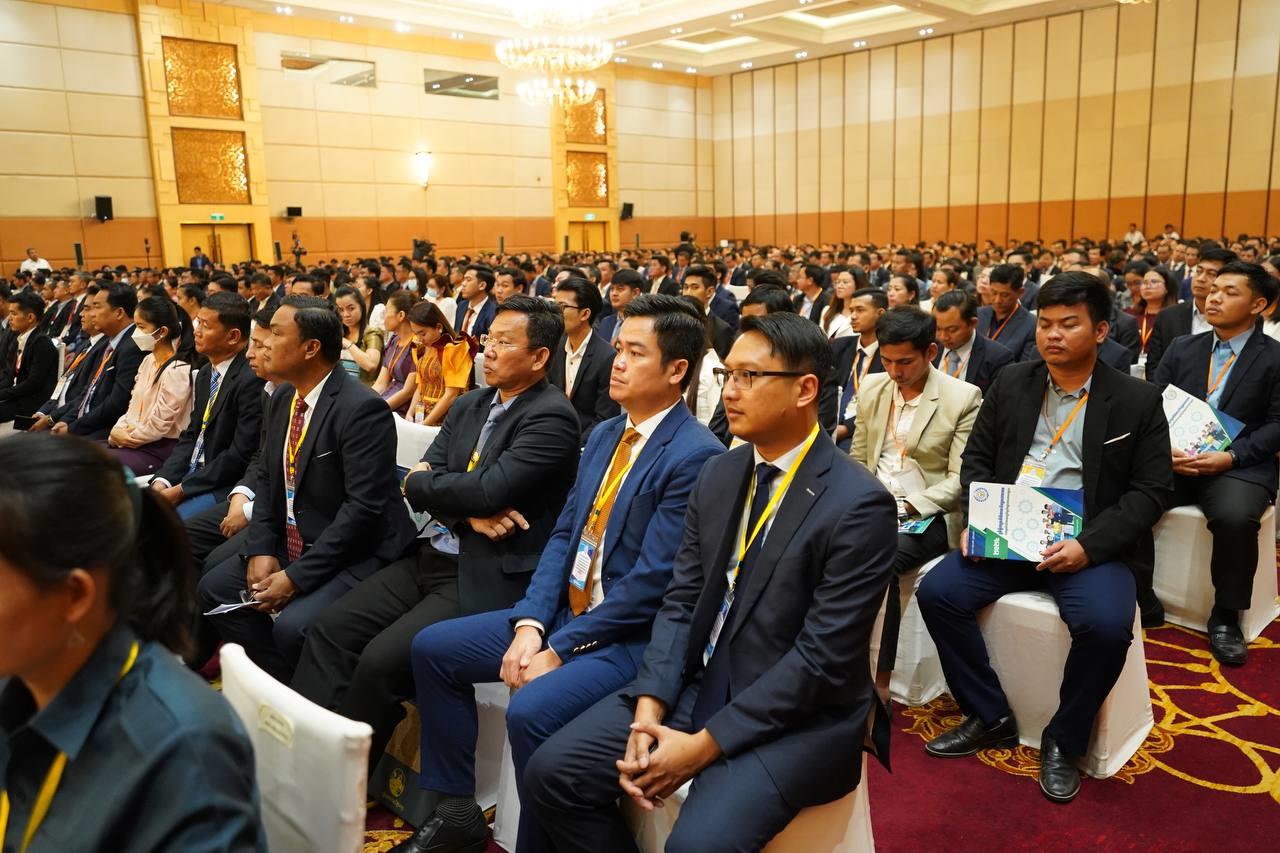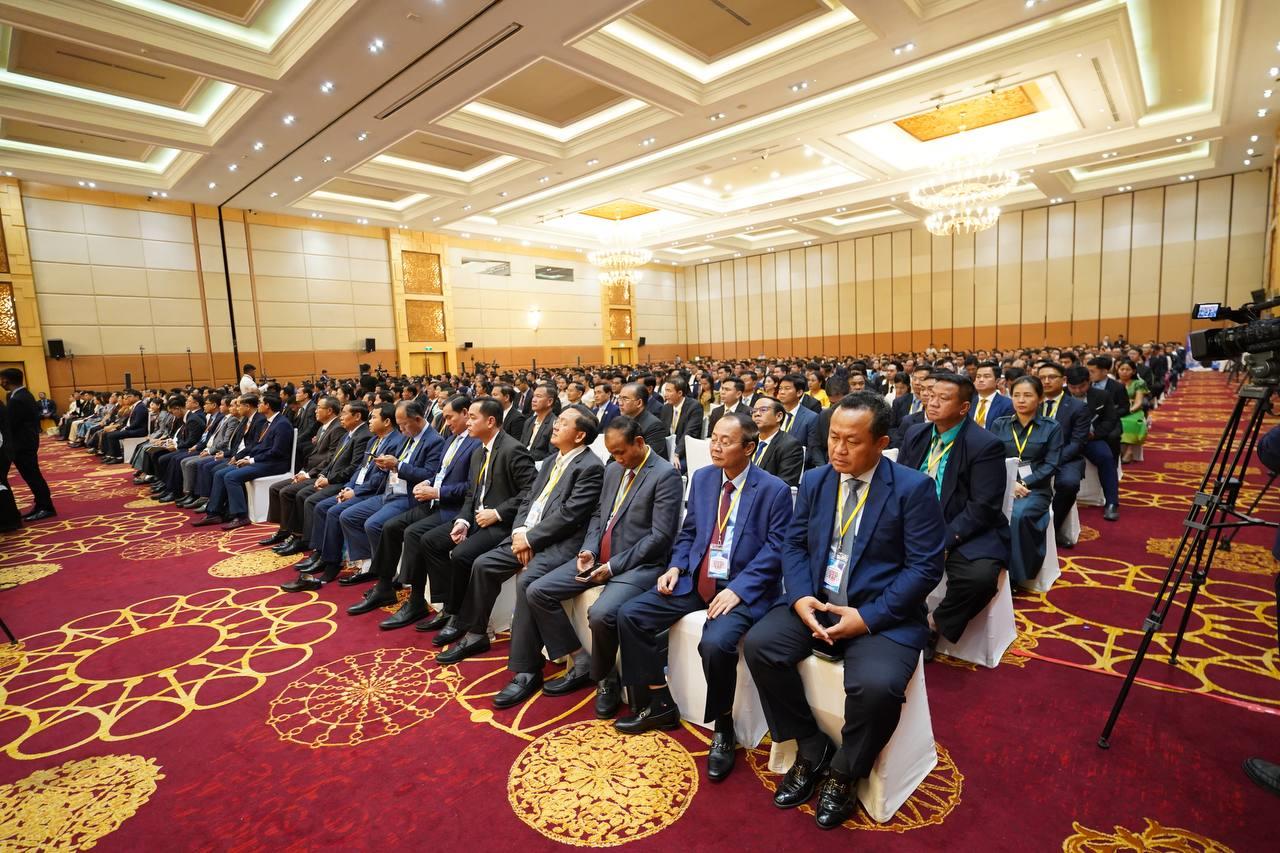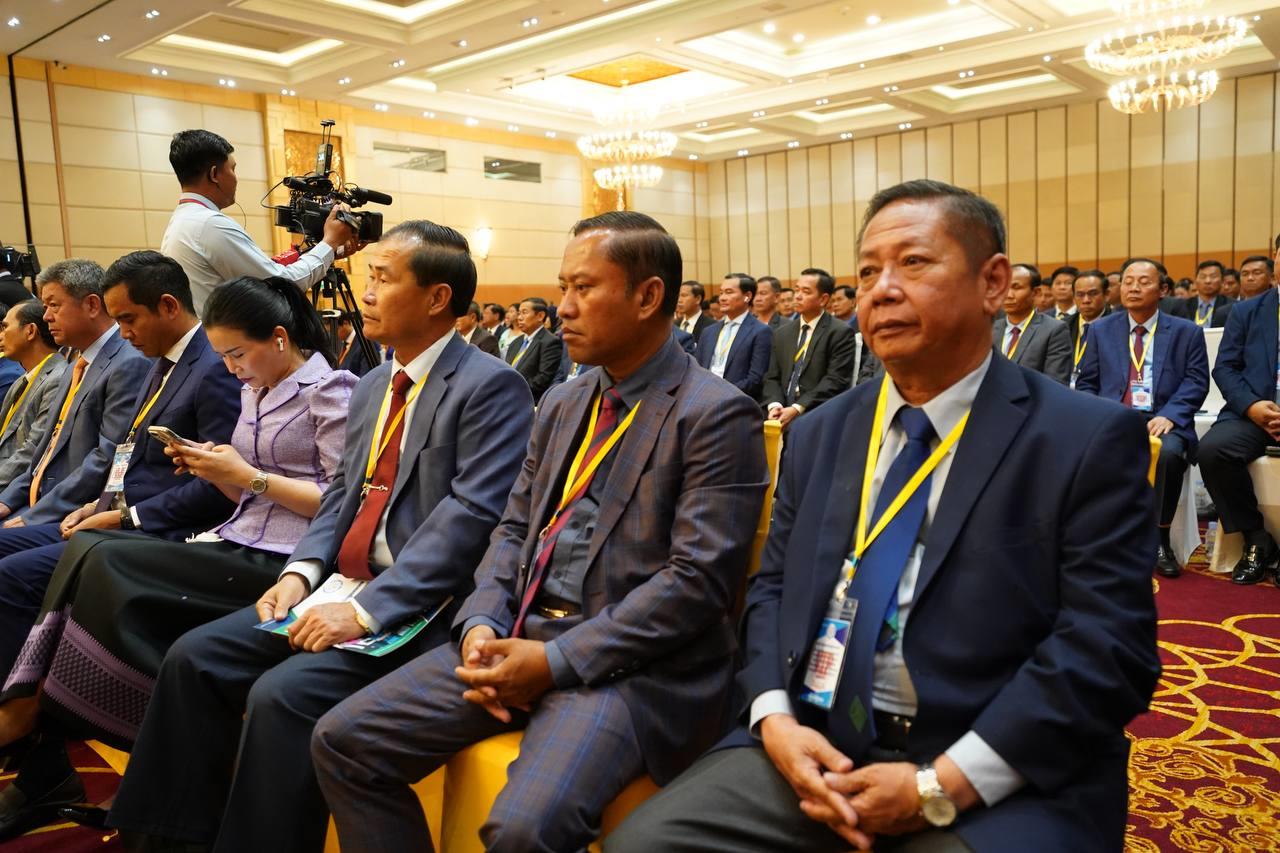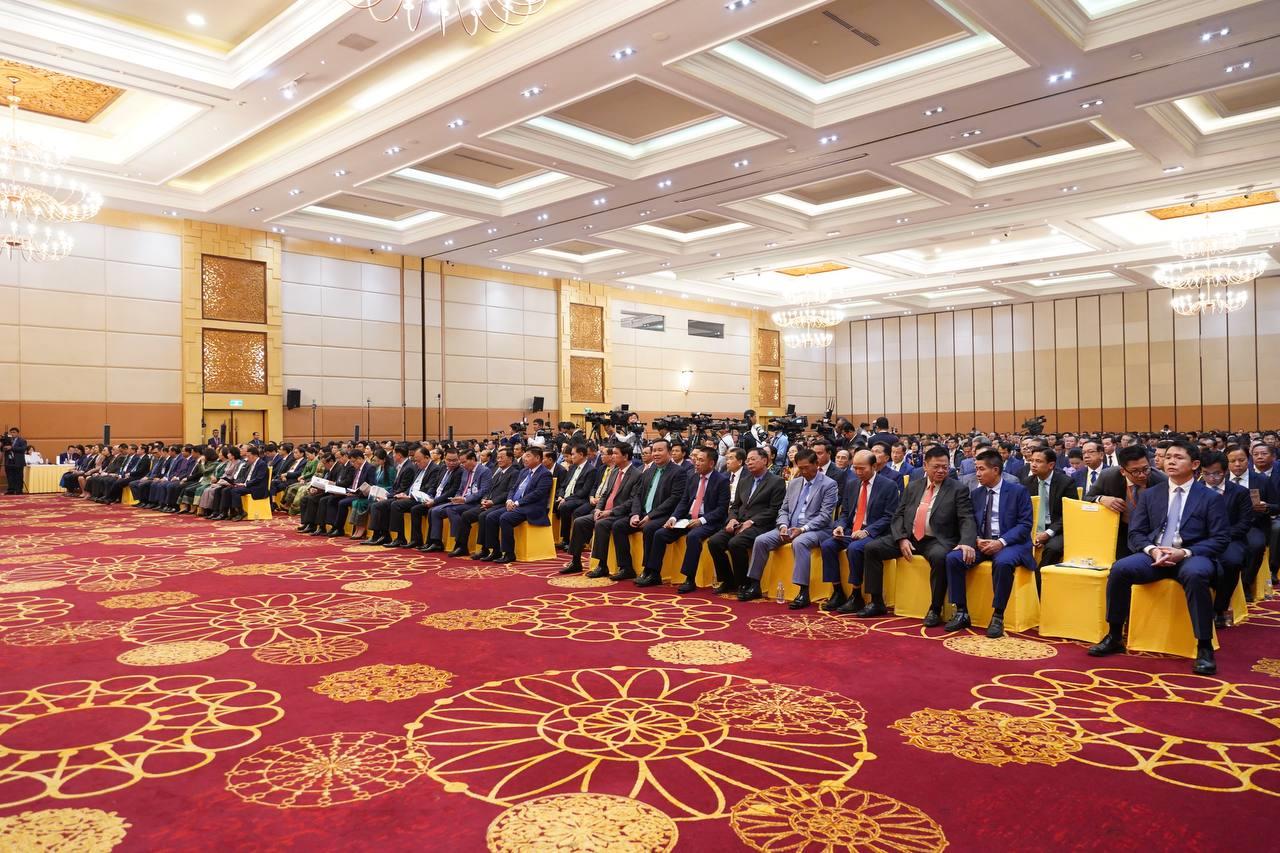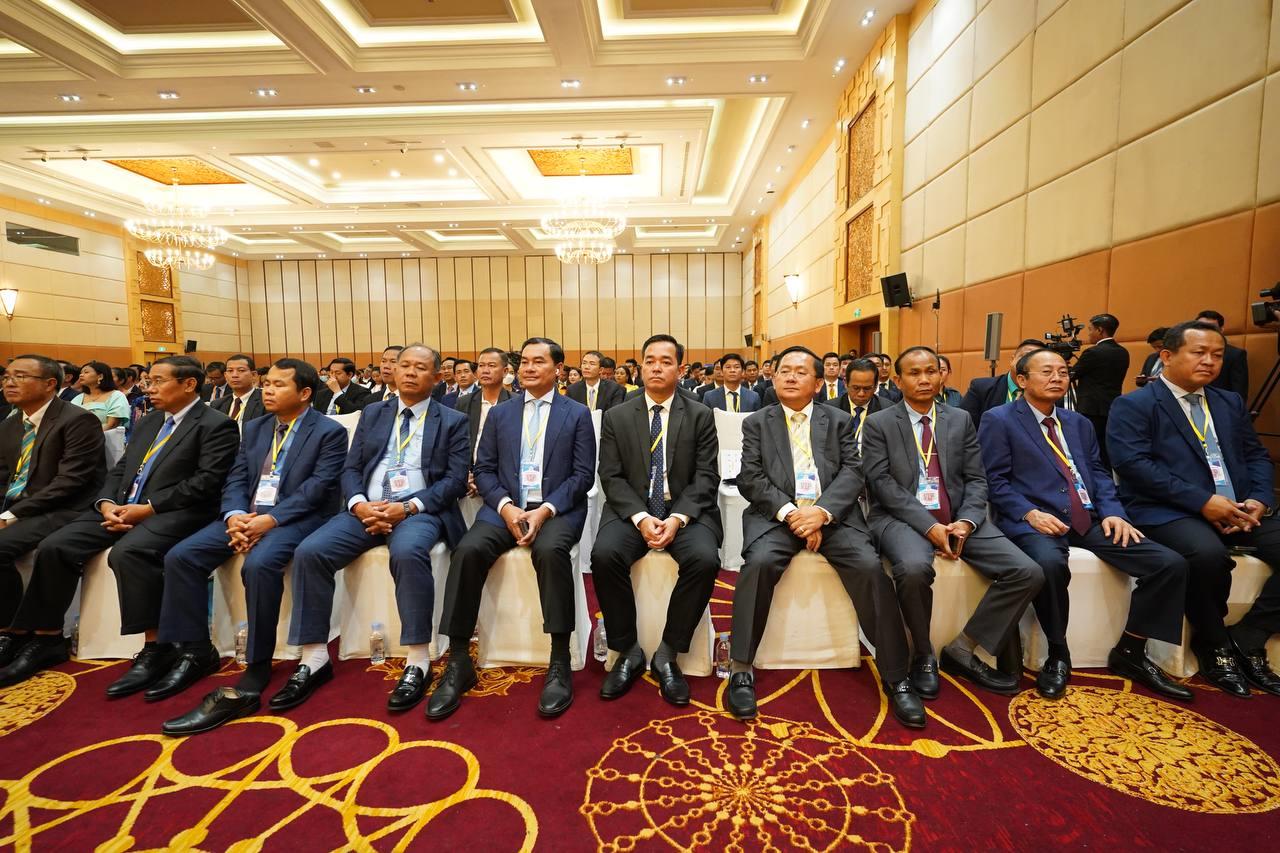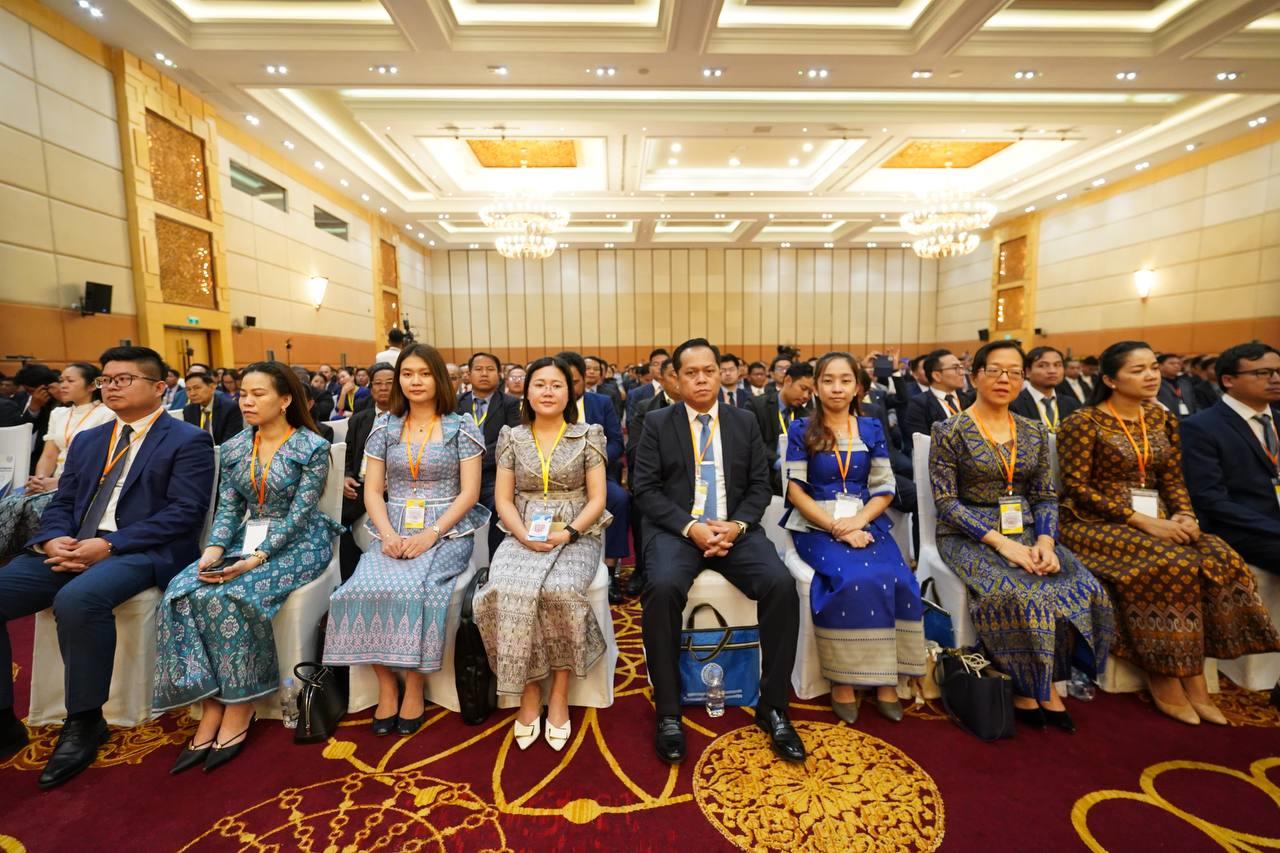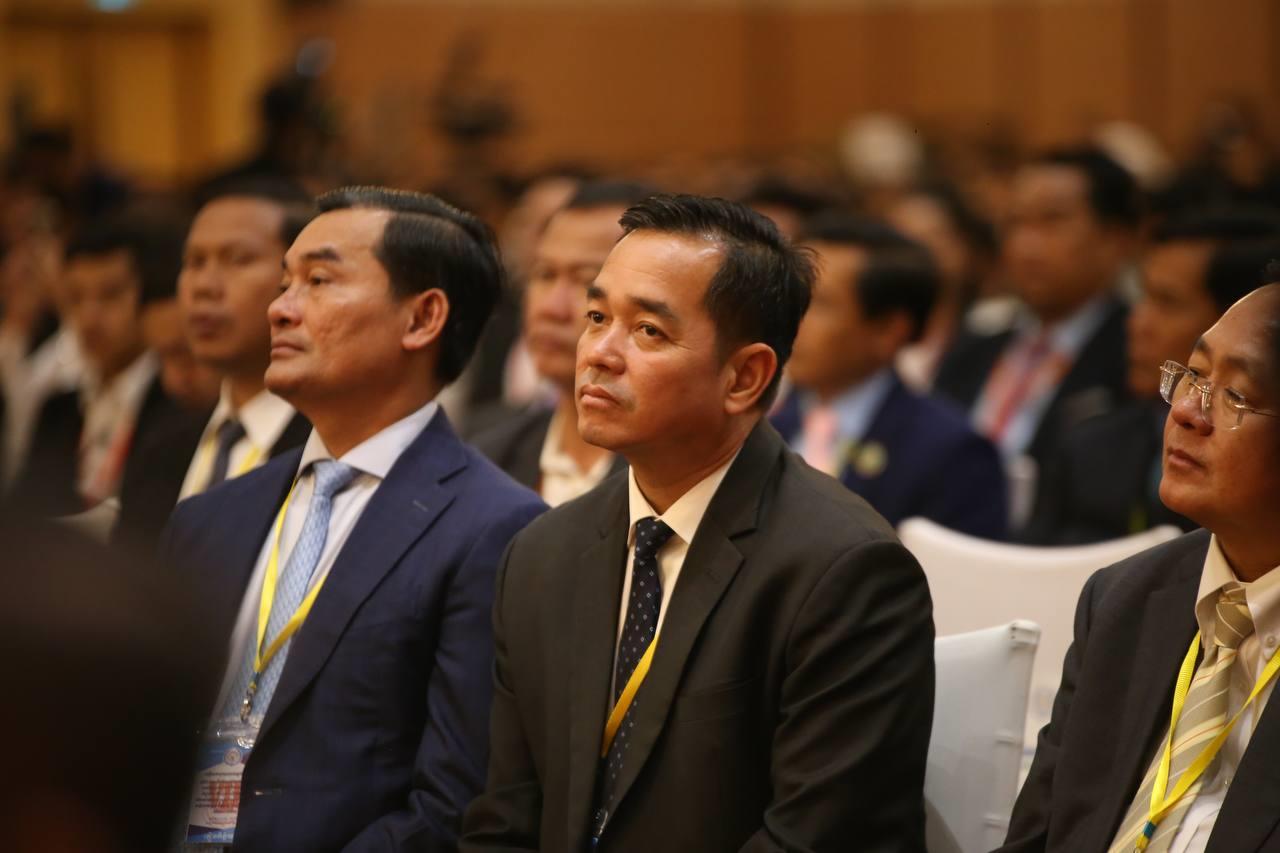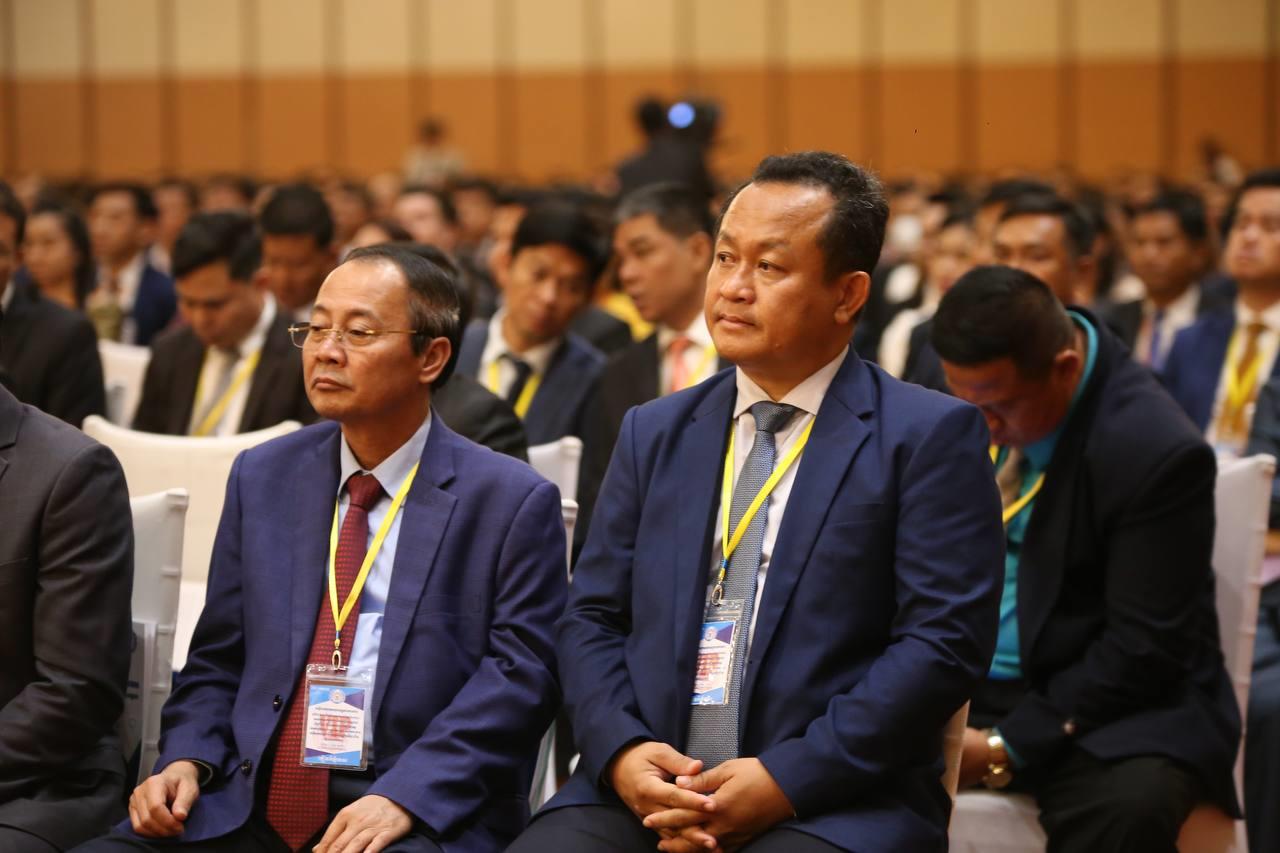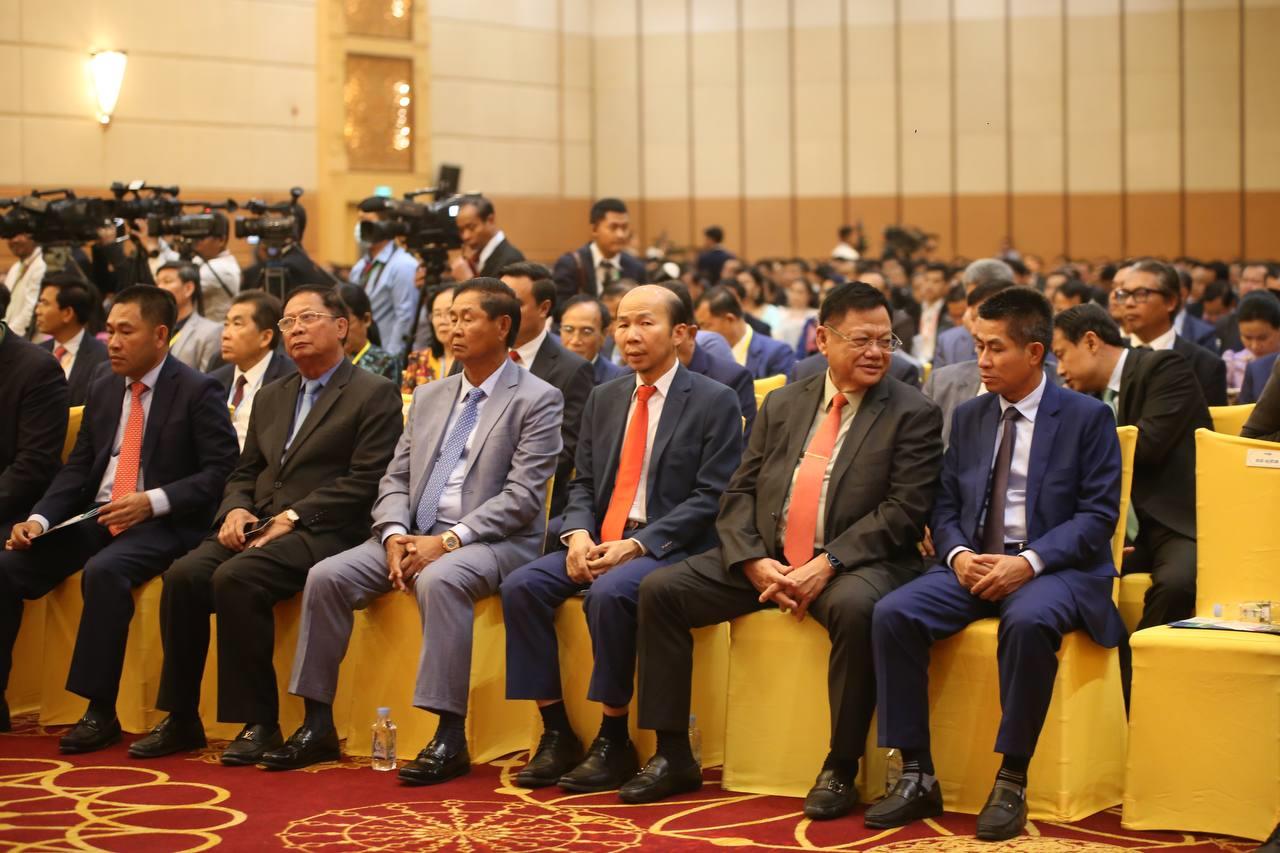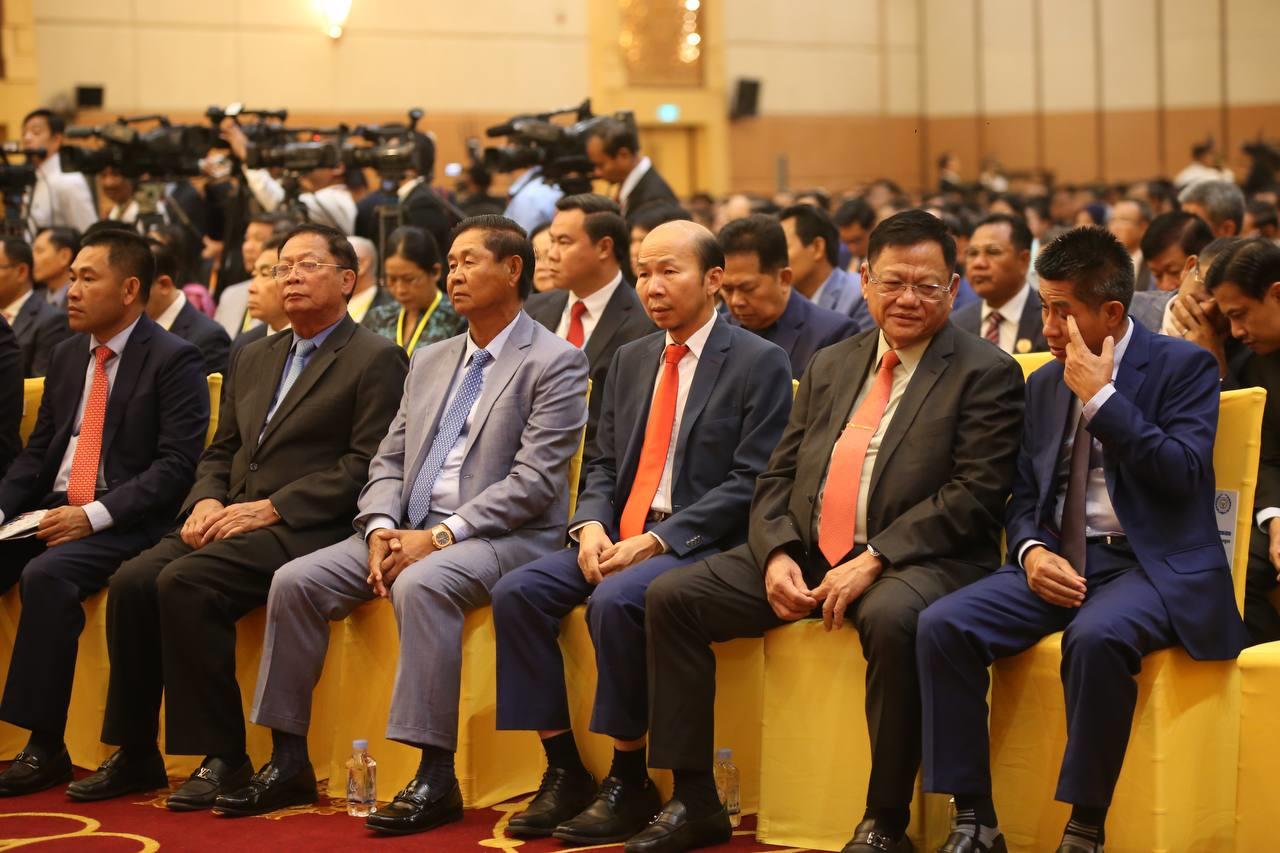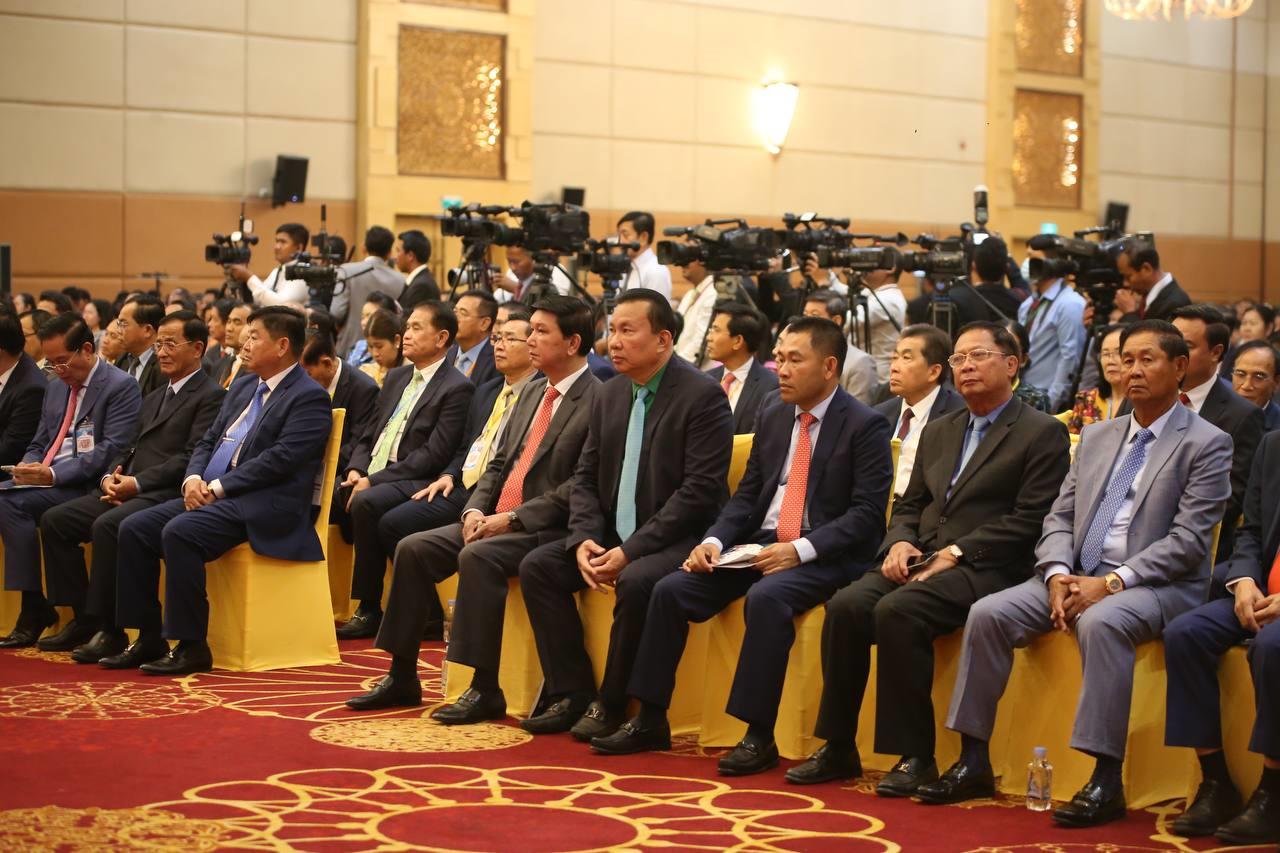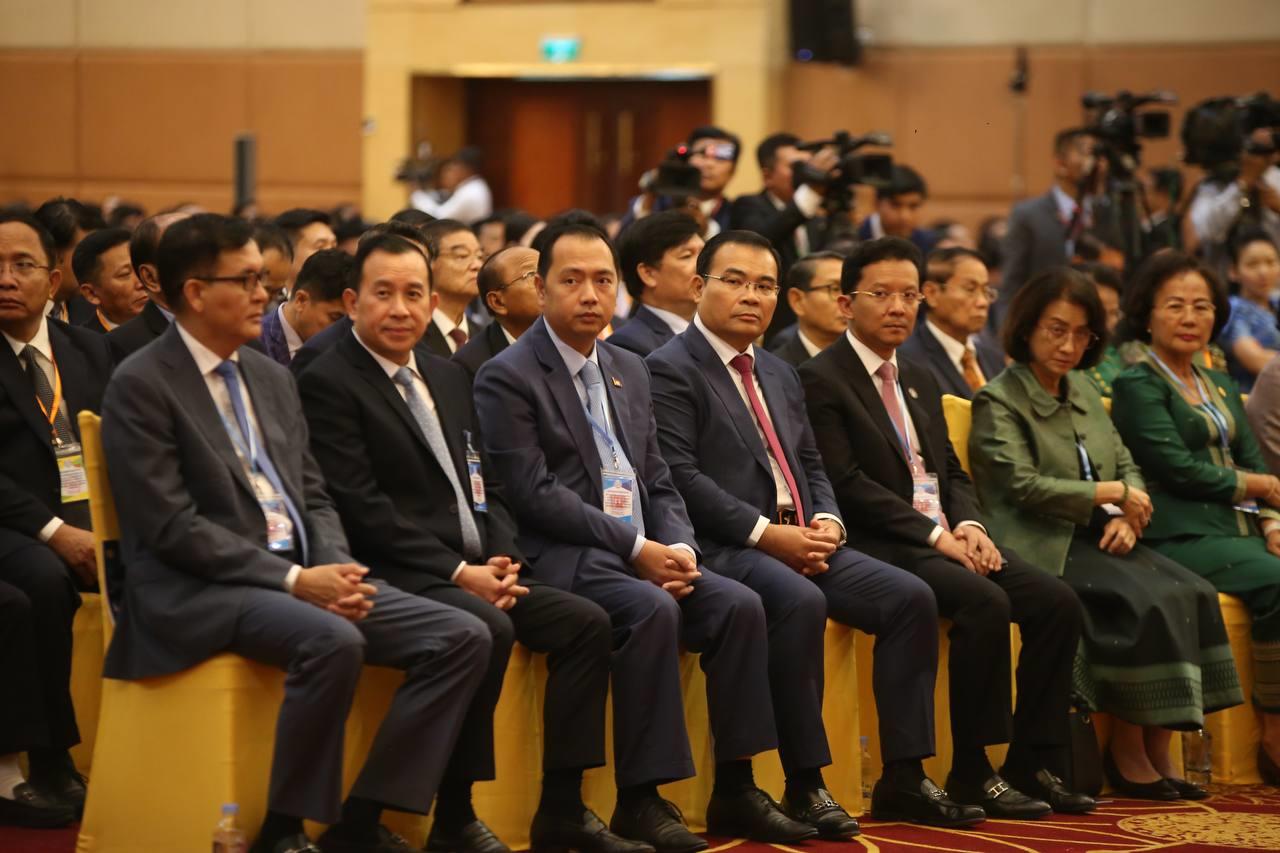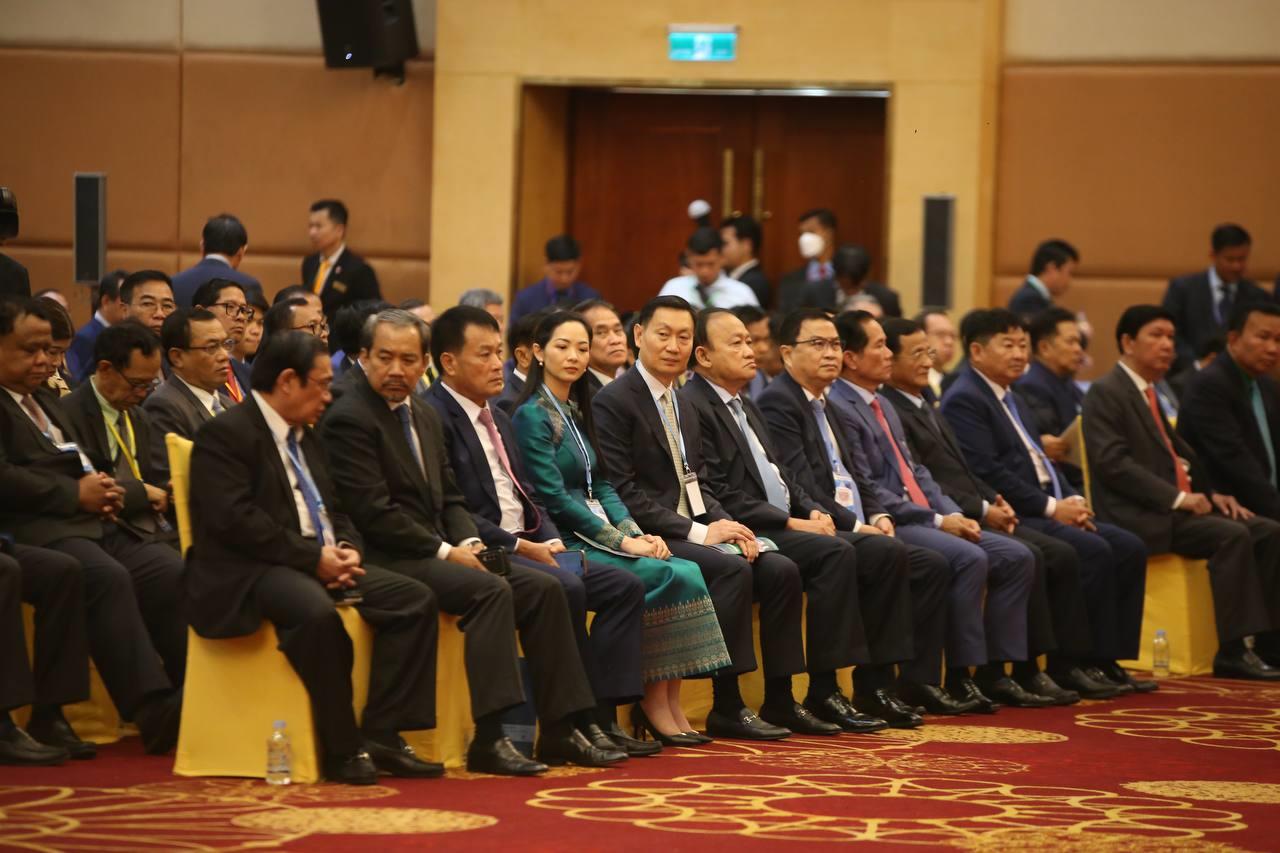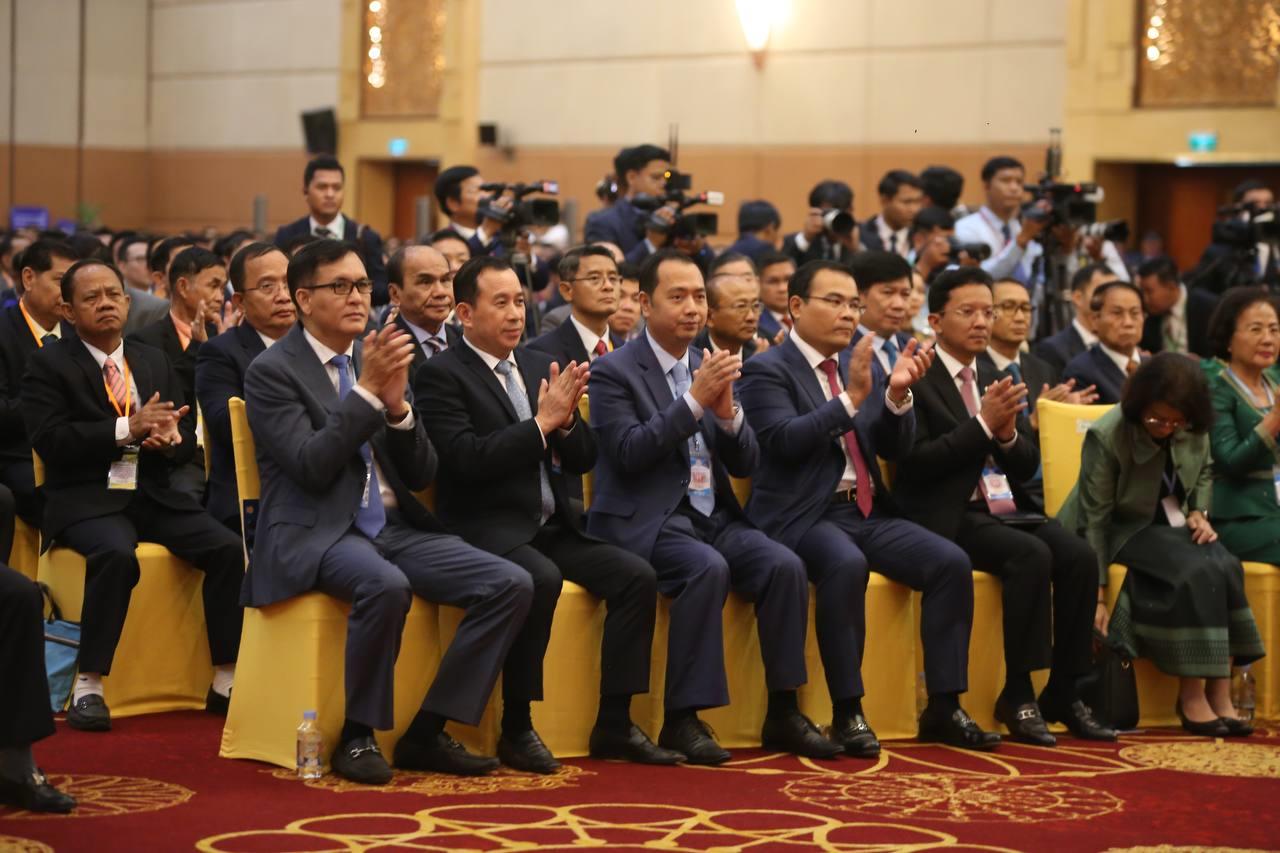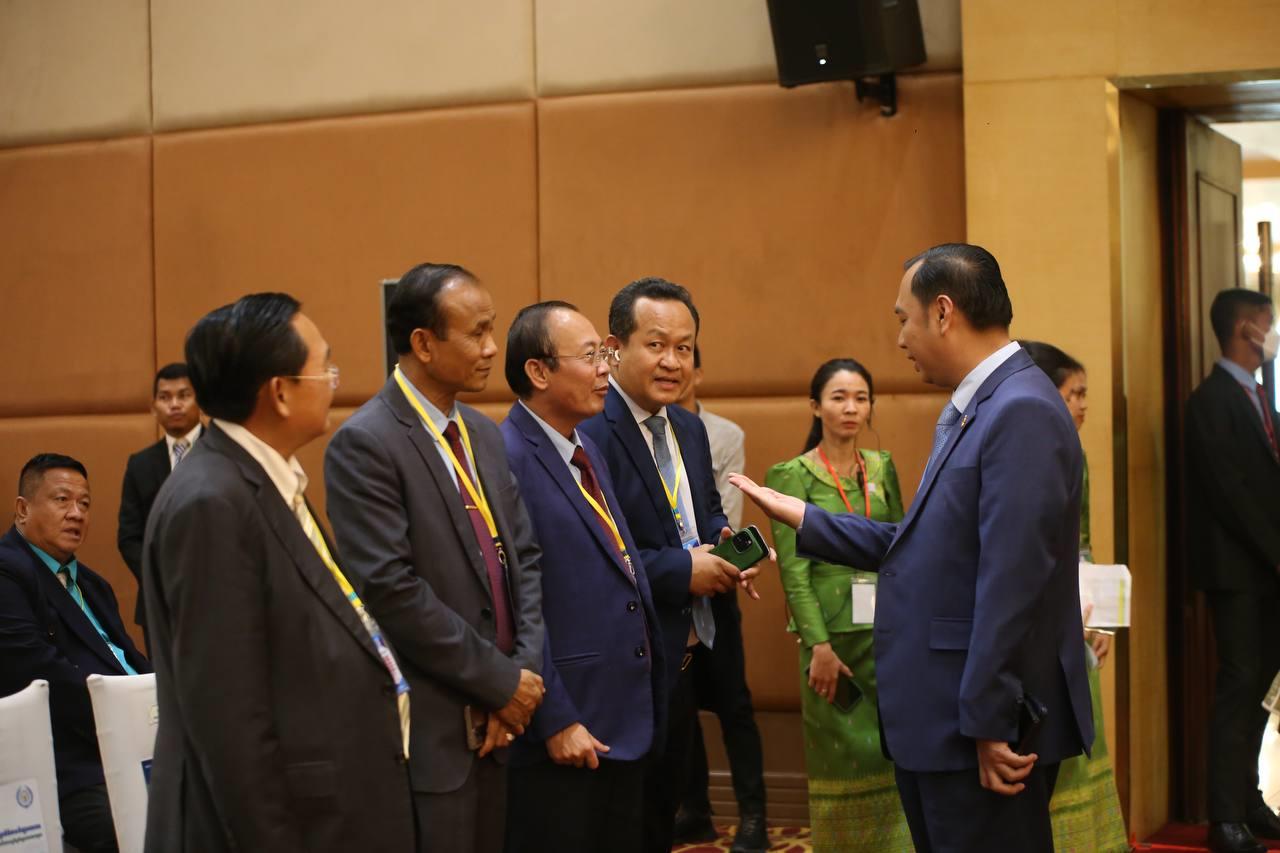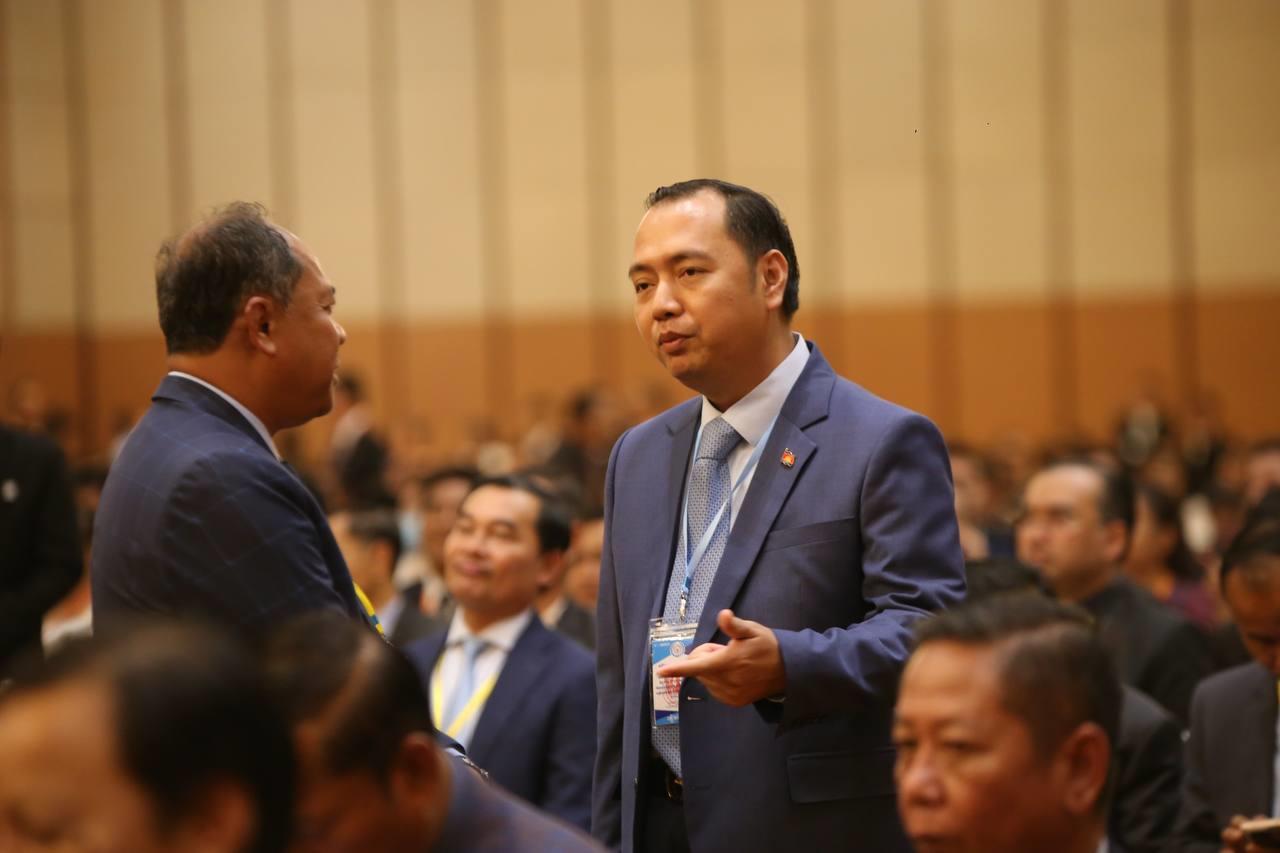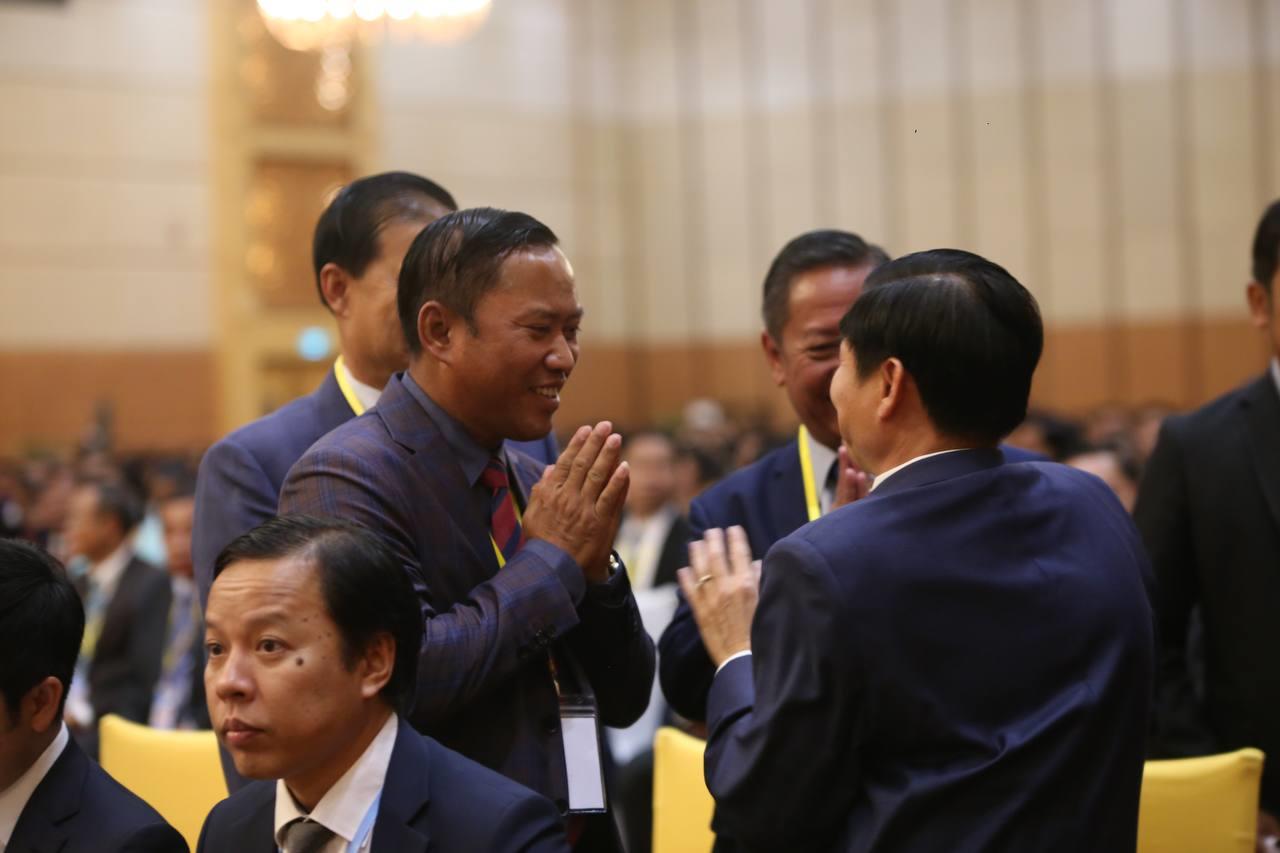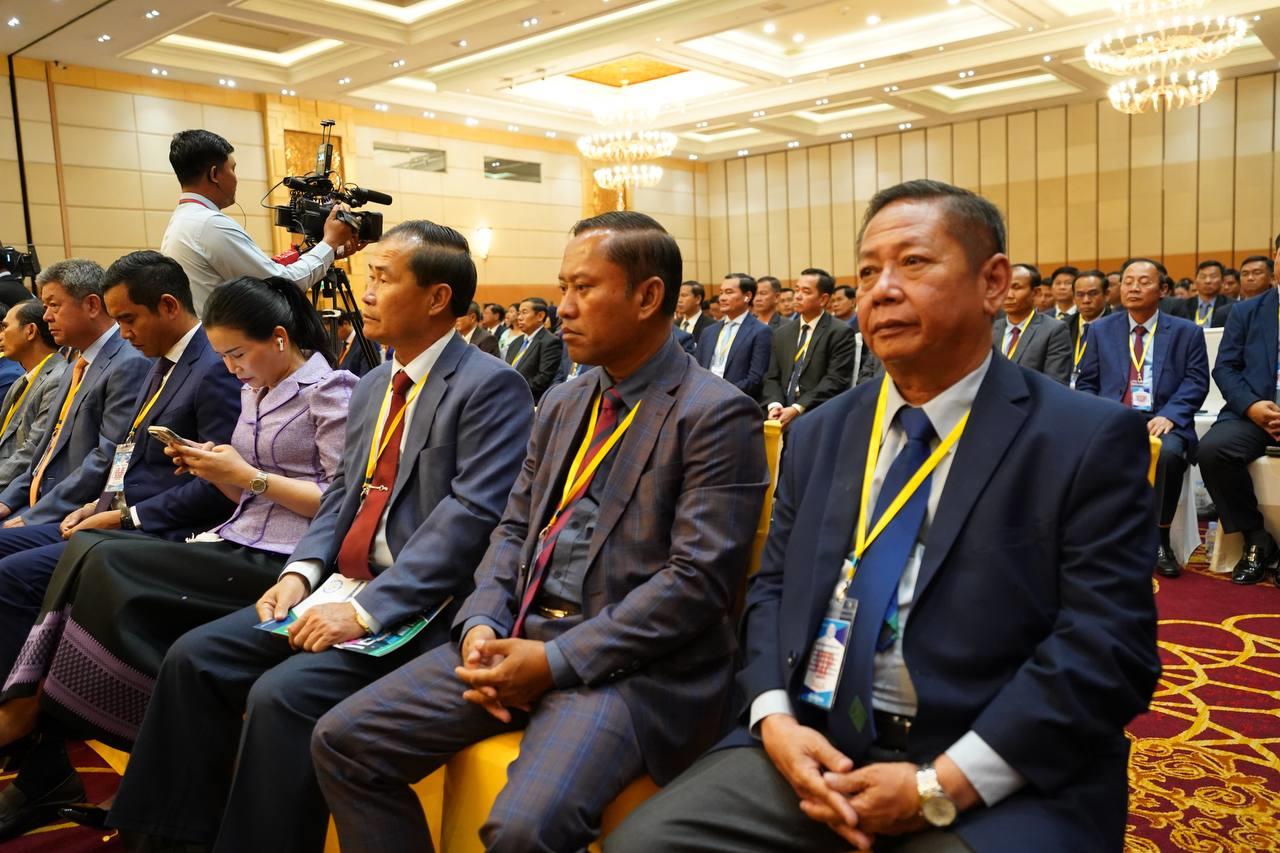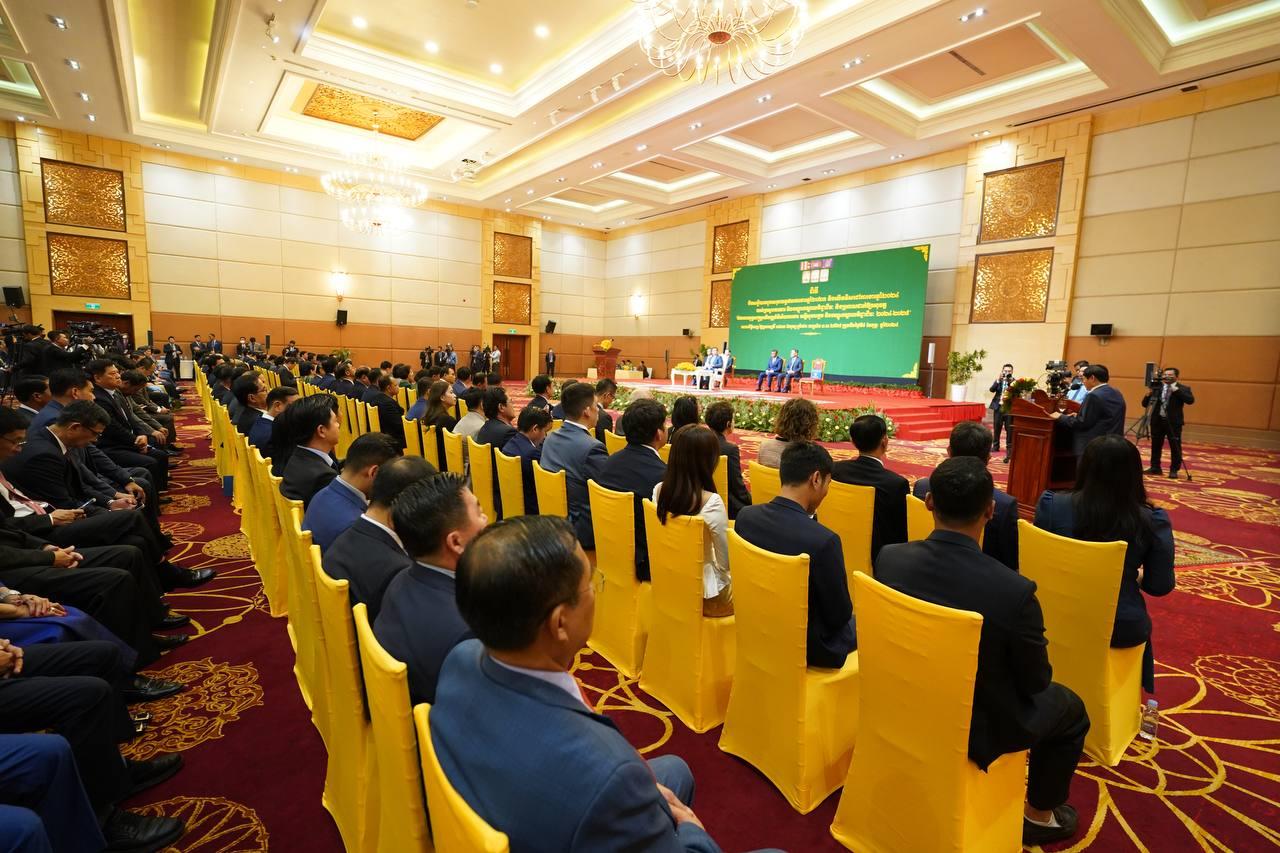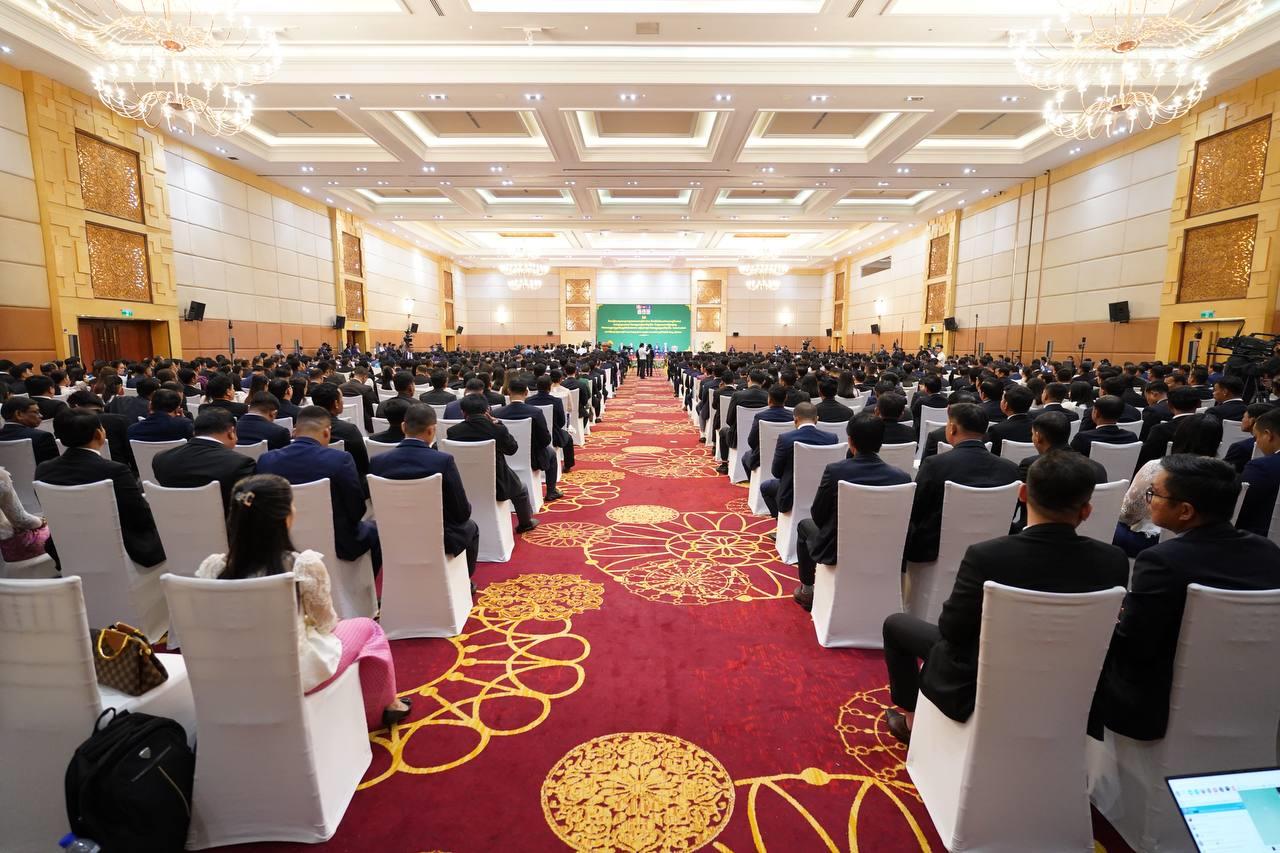Phnom Penh (FN), Feb. 8 – Cambodian Prime Minister Hun Manet recommended 13 points to the Ministry of Labor and Vocational Training to enhance performance and address challenges in alignment with regional and global trends of gentleness, dynamism, and close cooperation with all stakeholders to fulfill the aspirations of individuals seeking career advancement.
The premier spoke on Thursday (Feb. 8) at the annual meeting of the Ministry of Labour at Sokha Phnom Penh Hotel.
The 13 recommendations include as follows:
1. The Ministry of Labor and Vocational Training should diligently implement the reform measures introduced by the Royal Government during the 19th Royal Government-Private Sector Forum on 13 November 2023. This includes facilitating the provision of various services and a series of public services in response to requests from the private sector.
2. Regarding inspection activities, I encourage the Ministry of Labor and Vocational Training to lead this mechanism. Inspections should be conducted once a year for necessary and selective goals unless there are complaints from workers or any incidents occur. Additionally, inter-ministerial inspections should be conducted to eliminate child labor, particularly in high-risk areas.
3. I urge the implementation of the 10 key recommendations made by Samdech Techo Hun Sen as well as the 10 recommendations set forth on 29 August 2023, to be highly effective.
4. The Royal Government's policy to implement vocational and technical training programs for 1.5 million young people from poor and vulnerable families should continue. The quality of training should align with the “Learn to completion, learn to gain knowledge and secure employment" initiative, and the program's scope should be expanded to include other key target groups including individuals from the informal economy, vulnerable youth, and entrepreneurs.
5. The Ministry of Labor and Vocational Training should enhance the training of technical skills at the master's level to prepare individuals for middle-level management roles in enterprises and establishments. This training program should include internships and practical work in establishments for 4 to 6 months to ensure high-quality skills, productivity, and competitiveness.
6. The Upskilling and Reskilling program should be strengthened for unskilled, semi-skilled, or skilled workers, as well as those affected by technological changes in the workforce. This initiative aims to improve labor productivity, promote apprenticeship obligations, provide internship opportunities, and enhance worker training and capacity building in the workplace. Furthermore, digital training programs, diversified or alternating programs, and lifelong learning opportunities should be provided, along with competency tests and mutual recognition of skills within the ASEAN region.
7. Continuously promote apprenticeship obligations in accordance with the Labor Law by exploring the feasibility of accepting students for internships in enterprises and establishments. This includes considering the inclusion of apprenticeship obligations through information dissemination and registration with the Inspection Department, in collaboration with the International Labor Organization. The Ministry of Labor and Vocational Training must facilitate the flexible implementation of apprenticeship obligations by offering options for enterprises and establishments, which include:
Option 1: Directly provide Upskilling and Reskilling programs to their workers.
Option 2: Recruit graduates from technical and vocational education and training institutions for internships at their enterprises.
Option 3: Send engineers or experts from their enterprises to deliver presentations or lectures to share knowledge, skills, and experiences in technical and vocational education and training institutions.
8. With the promotion of the national campaign "An Enterprise is a Peaceful Community," the Ministry of Labor and Vocational Training must continue to promote the honor and dignity of entrepreneurs, workers in the informal economy, and Cambodian workers abroad. This includes ensuring the protection of rights, professionalism, and social protection. Additionally, enhance the efficiency of non-judicial labor dispute resolution mechanisms by strengthening the capacity of labor dispute mediation officers, employers' representatives, workers' representatives, and the Arbitration Council.
9. To further improve the health and well-being of workers, the Ministry of Labor and Vocational Training, in collaboration with relevant ministries and institutions, must enhance the implementation of occupational safety and health (OSH) in the workplace to minimize occupational hazards and risks.
10. The Ministry of Labor and Vocational Training, in cooperation with relevant ministries and institutions, should organize comprehensive education and awareness campaigns nationwide. These campaigns aim to educate workers, competent authorities at all levels, and the public about preventive measures to mitigate and prevent fires in enterprises and businesses, particularly in the manufacturing and tourism industries.
11. Encourage the promotion of research, innovation, and technological development to create products applicable in commercial industries. This includes increasing the number of research, development, and innovation centers and mobilizing national funds to support research. Additionally, promote the organization of national skills competitions and encourage participation in international competitions. Strengthen public-private partnerships through dialogues among public, private, and development partners. Encourage the establishment of additional technical and vocational education and training institutions in economic zones and industrial parks, and enhance the expansion of sectoral professional councils.
12. Expand the scope and reinforce the social security system by enhancing the operational efficiency of the National Social Security Fund (NSSF). Review policy frameworks and legal documents to extend the implementation of social security regimes to entrepreneurs, workers in the informal economy, and other volunteers. Facilitate discussions and agreements with countries to exchange social security data on pensions to enable the mobility of the social security system across different countries.
13. I would like to seize this opportunity to encourage all ministries and institutions to maintain their proactive approach in implementing public administration reform, decentralization and deconcentration, and capacity development of civil servants to enhance work efficiency. Additionally, prioritize the public financial management reform program and relevant policies, as well as embrace the digital revolution to optimize public services in addressing requests from the private sector.
=FRESH NEWS
